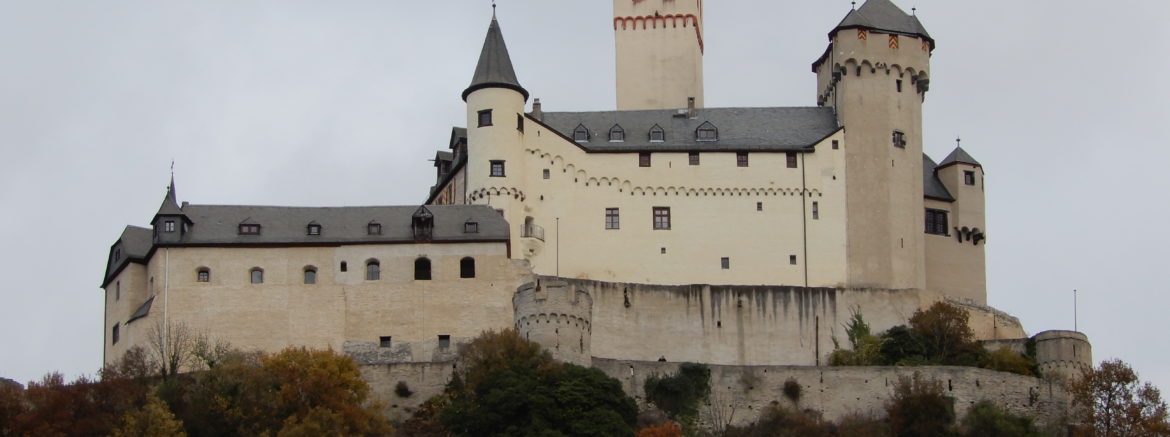800 Years Back In Time
After enjoying lunch on board the Kvasir, we docked in Koblenz at the confluence of the Rhine and Moselle rivers. A short bus ride up the steep and windy mountainside delivered us to Marksburg Castle. Where the Heidelberg Castle was a ruin that has been uninhabited for 250 years, Marksburg Castle looks move in ready. Perfectly preserved, the 800-year-old fortress on a hilltop has incredible views of the Rhine Valley below. From this vantage point, the inhabitants of the castle could spot advancing marauders from miles away in any direction.
Built in the 12th century, Marksburg Castle is a great example of castle construction, castle purpose, and daily life. I was surprised to learn only about 10 people lived inside the walls of the massive fortress. Typically, the castle was the living place of the royal family and a few knights for security. The rest of the servants lived outside only entering to do their jobs of cooking, blacksmithing, and waiting on the royal family.
The guide describes in detail the concept of a castle keep and the many layers of progressive protection to fight off attackers. This was very cool and a definite highlight of the entire cruise!
Marksburg Castle
Marksburg Castle sits high on a hill overlooking the town of Marksburg and the Rhine River. It is a quick 12 mile ride by motor coach from our ship in Koblenz. The castle is strategically located to watch over and protect the town against attackers.
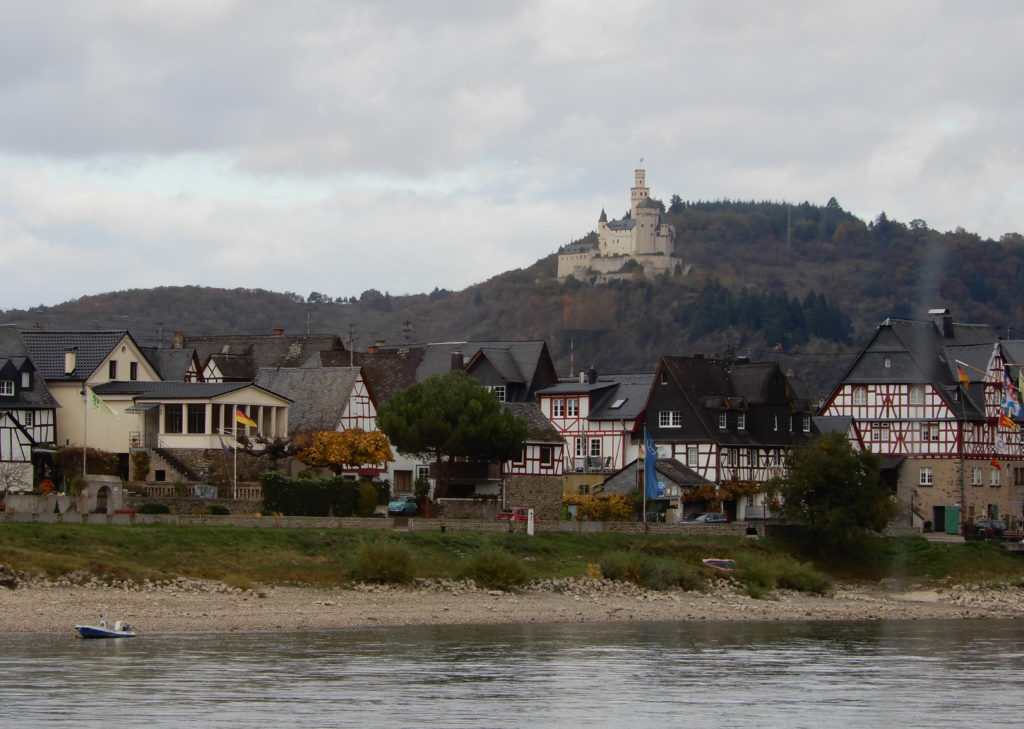
This half timbered house sits on the banks of the Rhine River below the castle. We heard it may be a bed and breakfast currently, but the nautical mast-arm and flags were interesting.
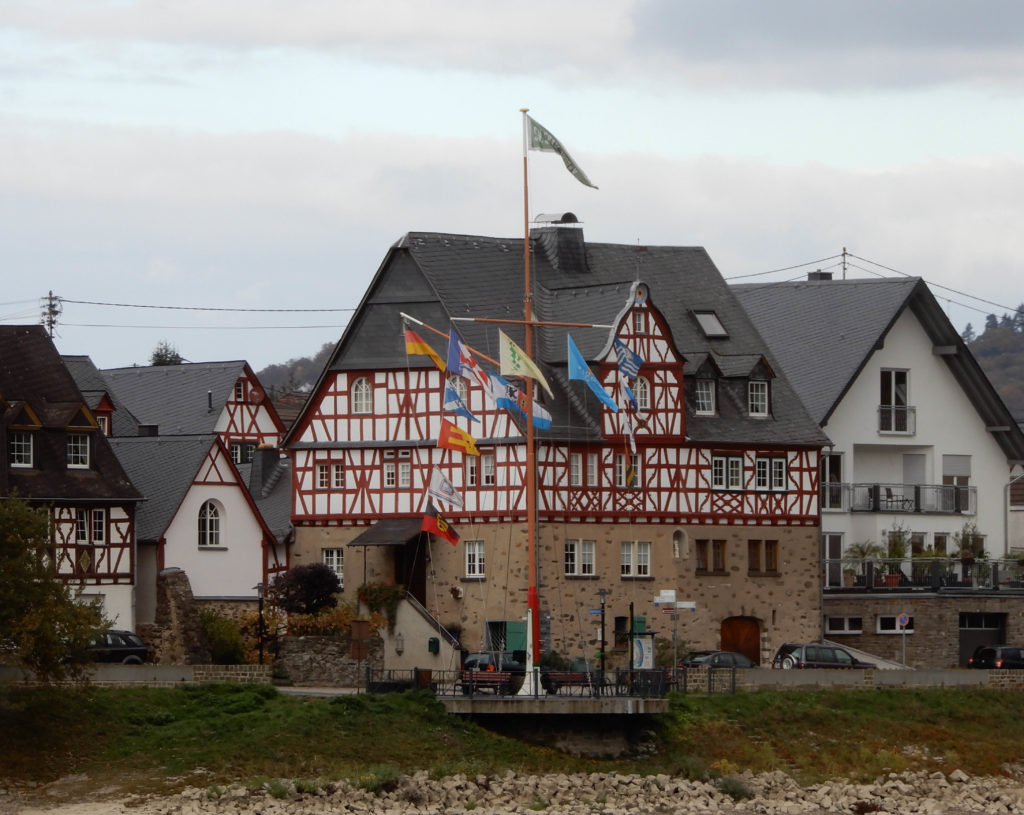
Marksburg Castle was built in the 12th century in both Romanesque and Gothic styles during different construction periods. Fortifications, artillery batteries and ramparts were added in the late 1400s making it a modern fortress.
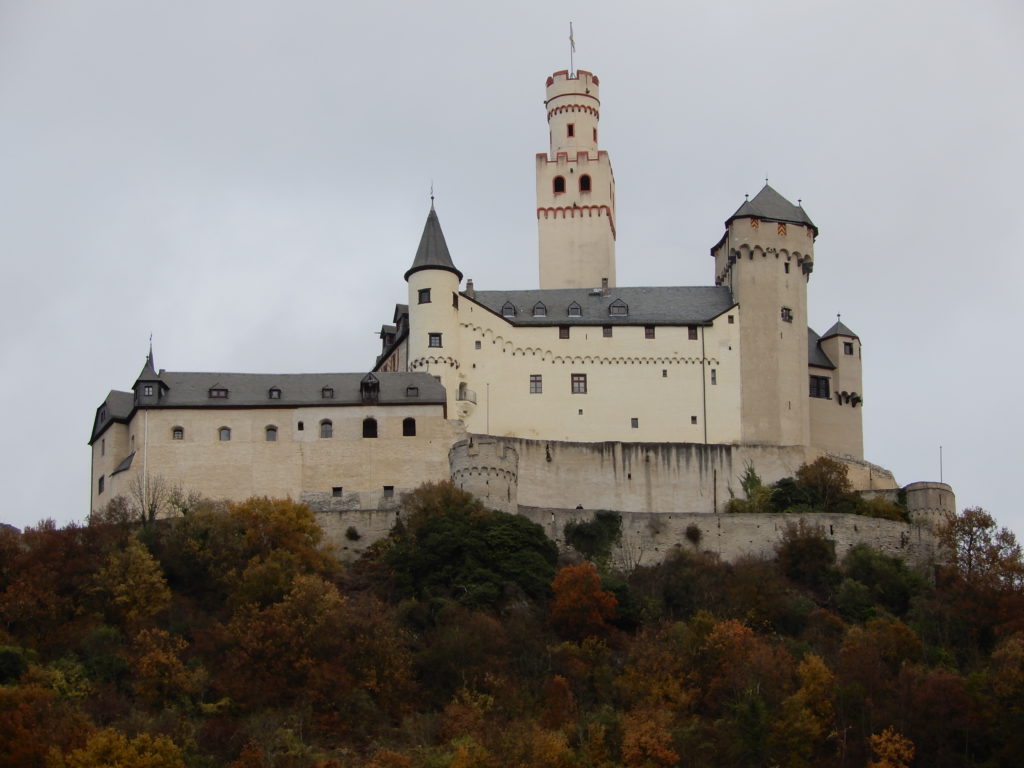
This aerial view of the castle provides a great overview of the layout of the castle. It also provides a good perspective of the multiple rings of protection. There are multiple layers of exterior walls, and multiple and redundant gates to gain entry to the interior areas of the castle.
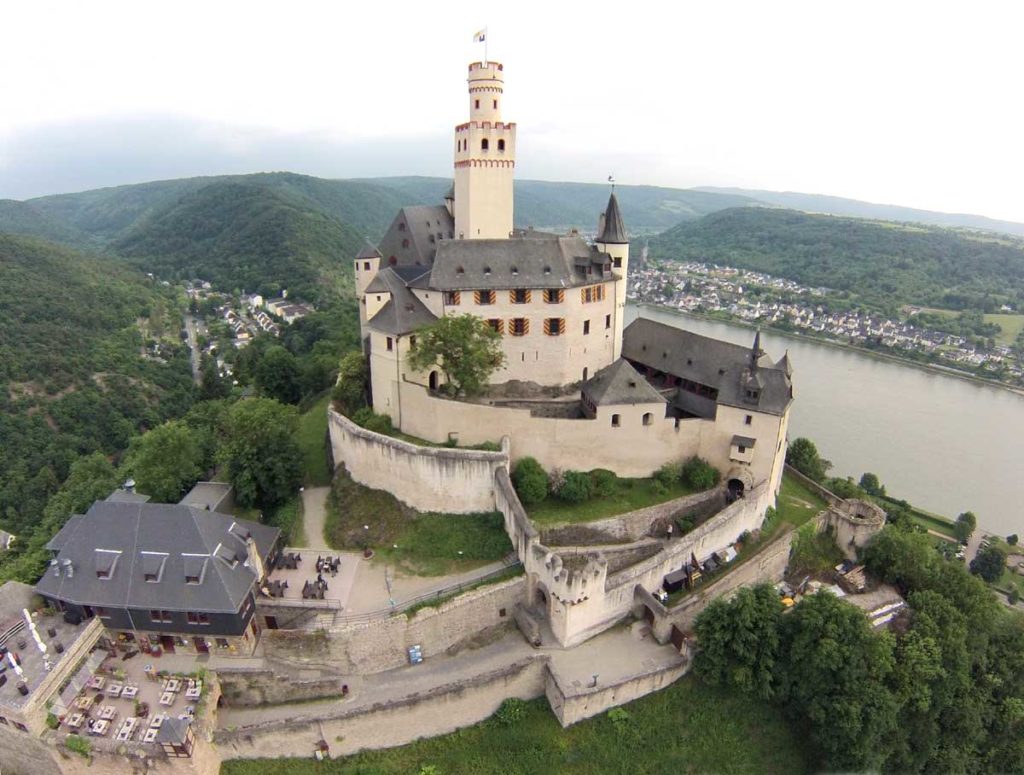
The Castle Keep
The below diagram highlights the main elements and areas of the castle and structures. In the event of an attack, intruders move through each layer of defense. If they are successful in penetrating the rings of protection, the ‘Square Keep’ is the final point of defense.
A Castle Keep is a refuge of last resort should the rest of the castle fall to an adversary. At Marksburg, if the castle fell, the royal family and knights would escape from the residence to the tower. A curved narrow stairway makes it difficult for attackers to climb and fight at the same time. The defending knights have the advantage using their right hands and swords fighting down at the invaders. The curvature of the staircase blocked the invaders right sword hand. The nobility and knights can wait out the attack in the Keep, or tower, until help can arrive.
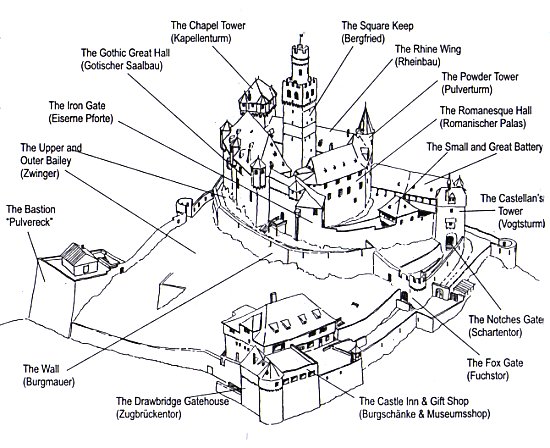
The main tower, or Keep is a high point proudly flying the castle’s flag to symbolize it’s sovereignty.
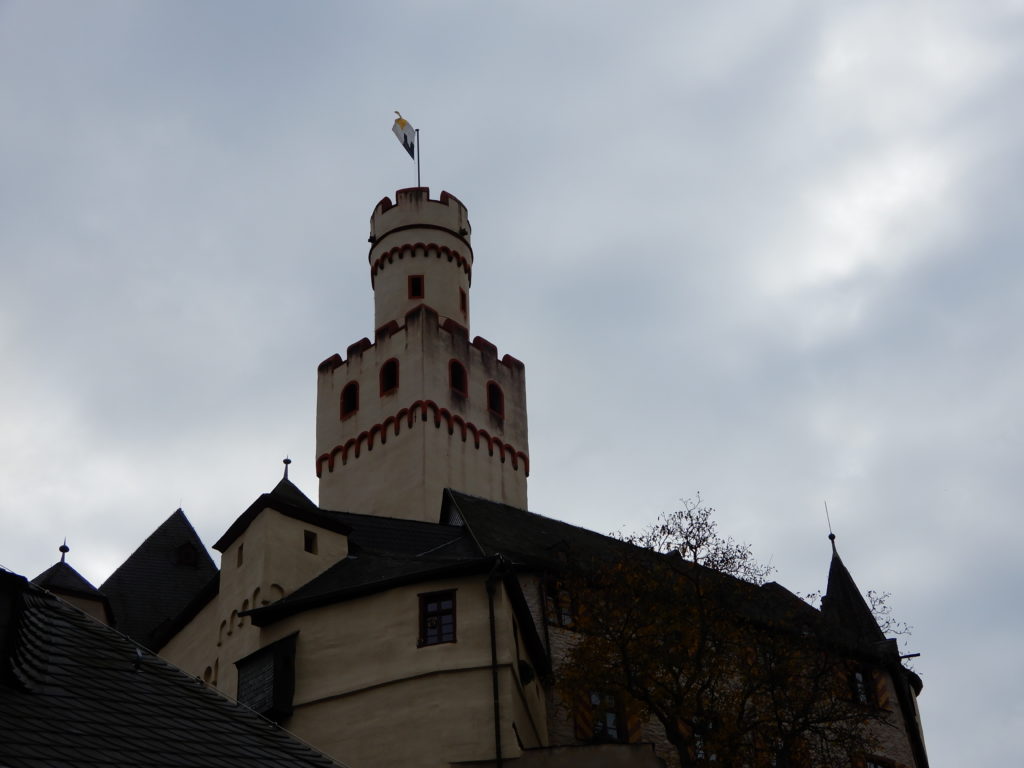
The castle’s perch on the hill top affords it beautiful views of the valley below. All the better to monitor ship traffic on the Rhine and watch for possible attackers.
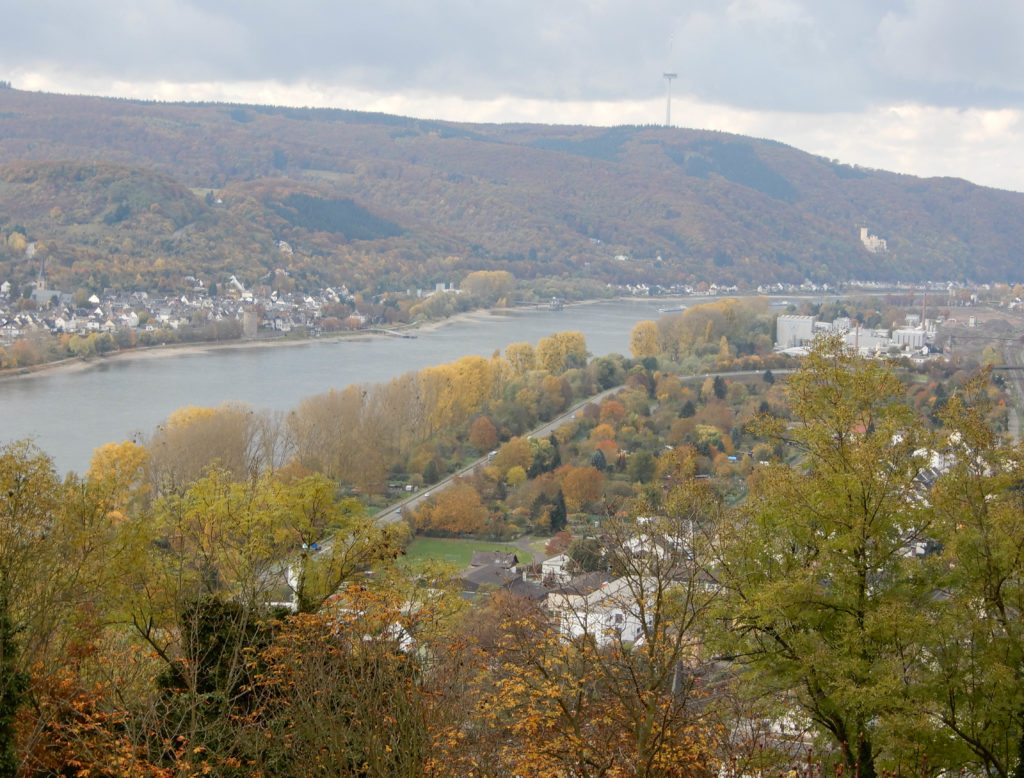
Penetrating the Fortress
The castle is built with multiple rings of protection. The outer ring is the strongest with high walls. Fortifications for defenders to fight from, and massive doors to prevent entry. Attackers must enter through passageways that have holes above allowing defenders to pour boiling oil on the attackers below.
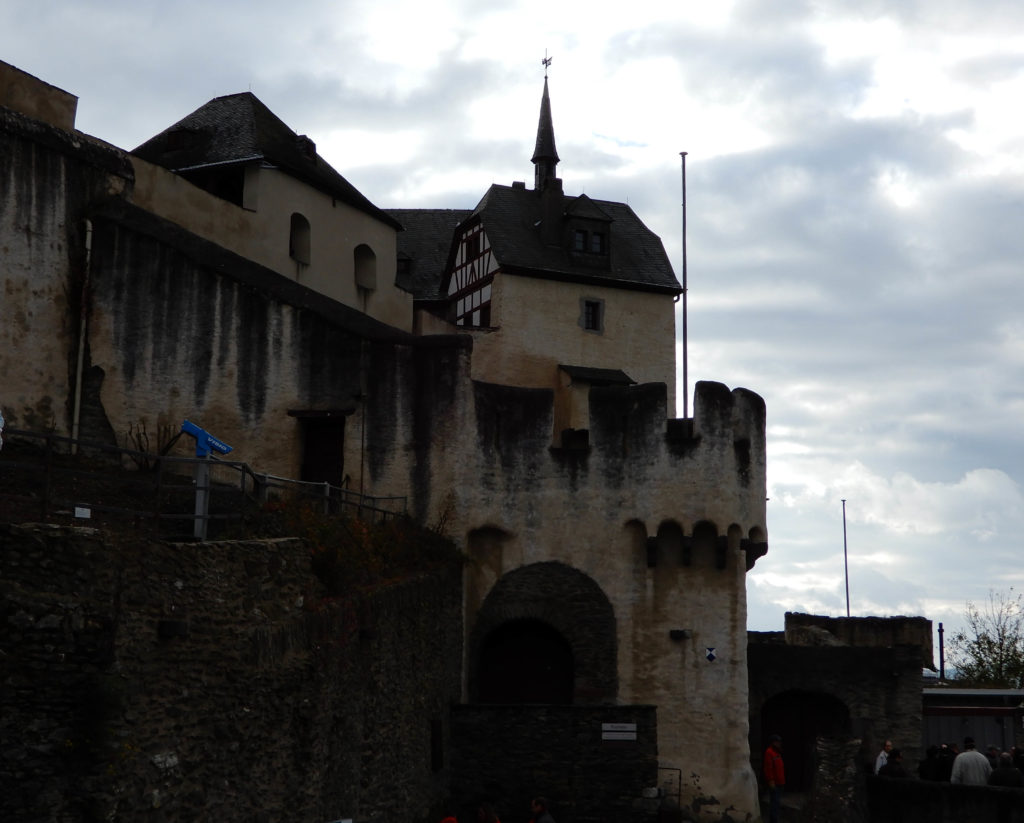
One of the ramparts to add fortification and defenses to the castle. This provides one of the many rings of protection and checkpoints a visitor must pass to gain entry to the castle.
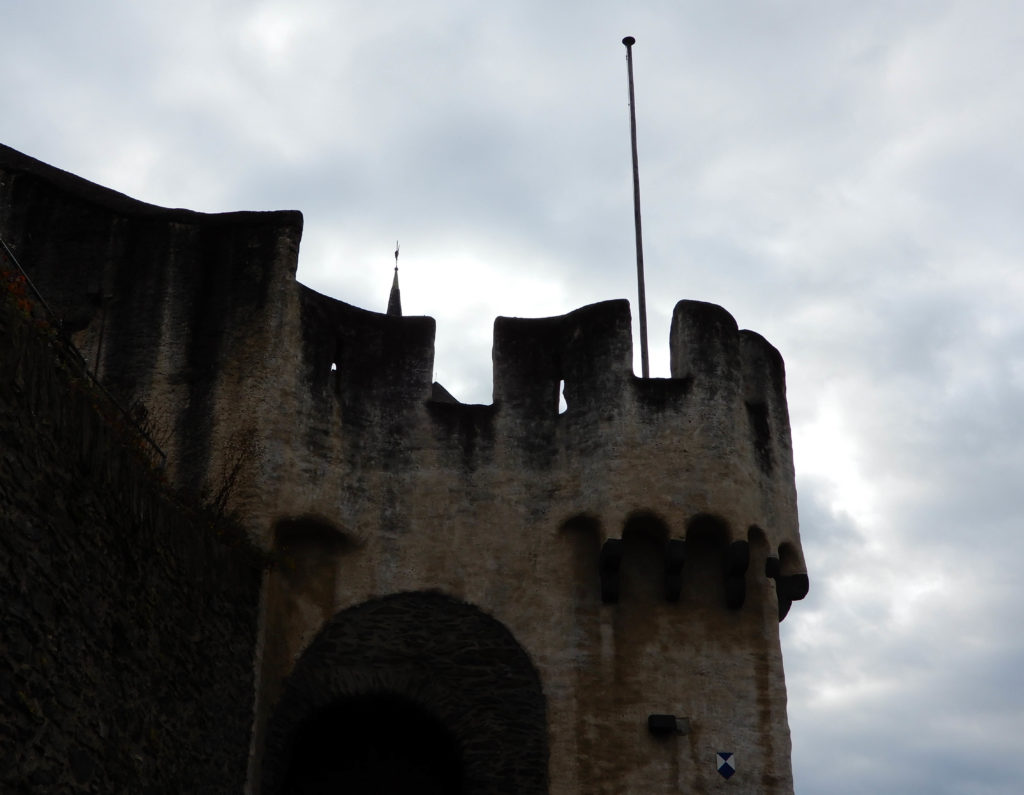
Once inside the castles walls, there are more rings of protection. This protected path leads to the main entrance to the interior areas of the castle.
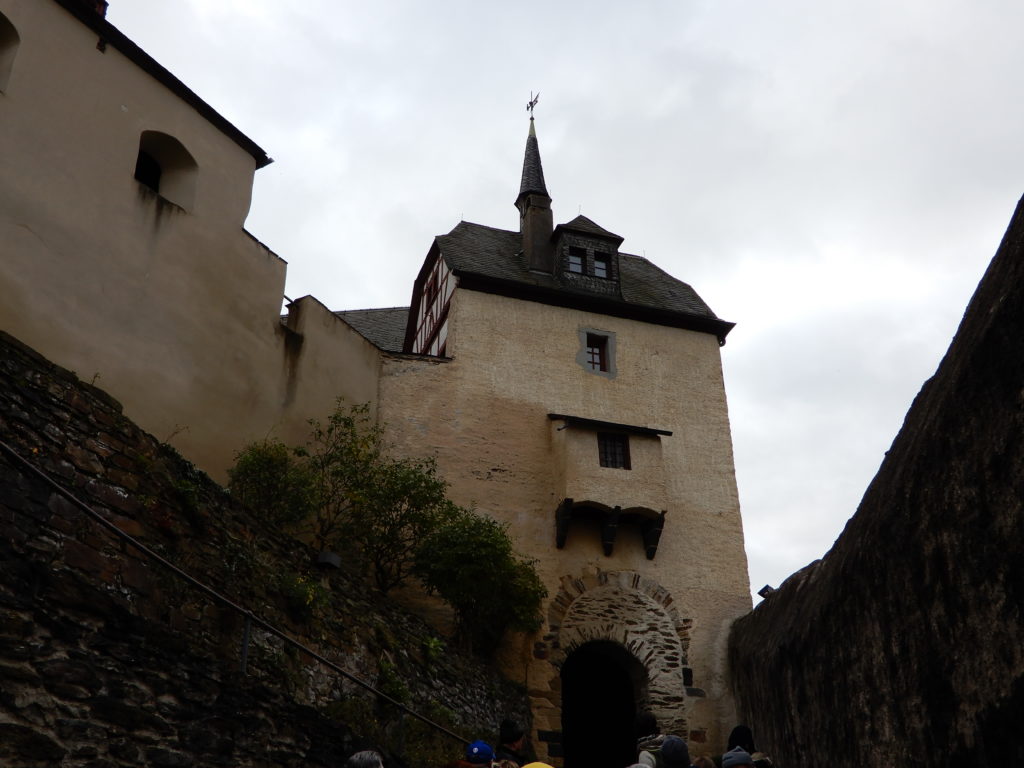
The main entrance door to the castle. At this point you have already passed a number of castle protection points. You must be a friend versus a foe.
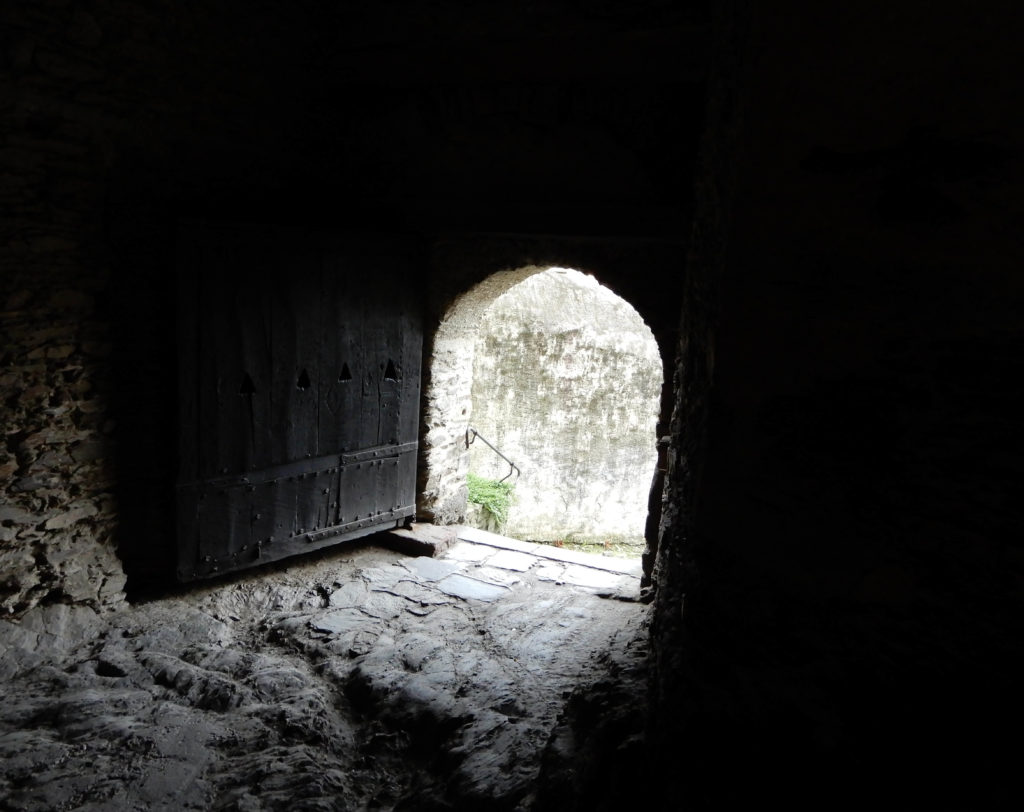
After entering the interior door, this pathway leads to the inner areas of the castle. The stones are smooth and slick from 800 years of use. This design allows horses to walk while also draining rain runoff. I found this interesting as it again was an example of how the castle just rises up from the mountain. The castle is an extension of the mountain. It is hard to see where the mountain stops and the man-made castle begins.
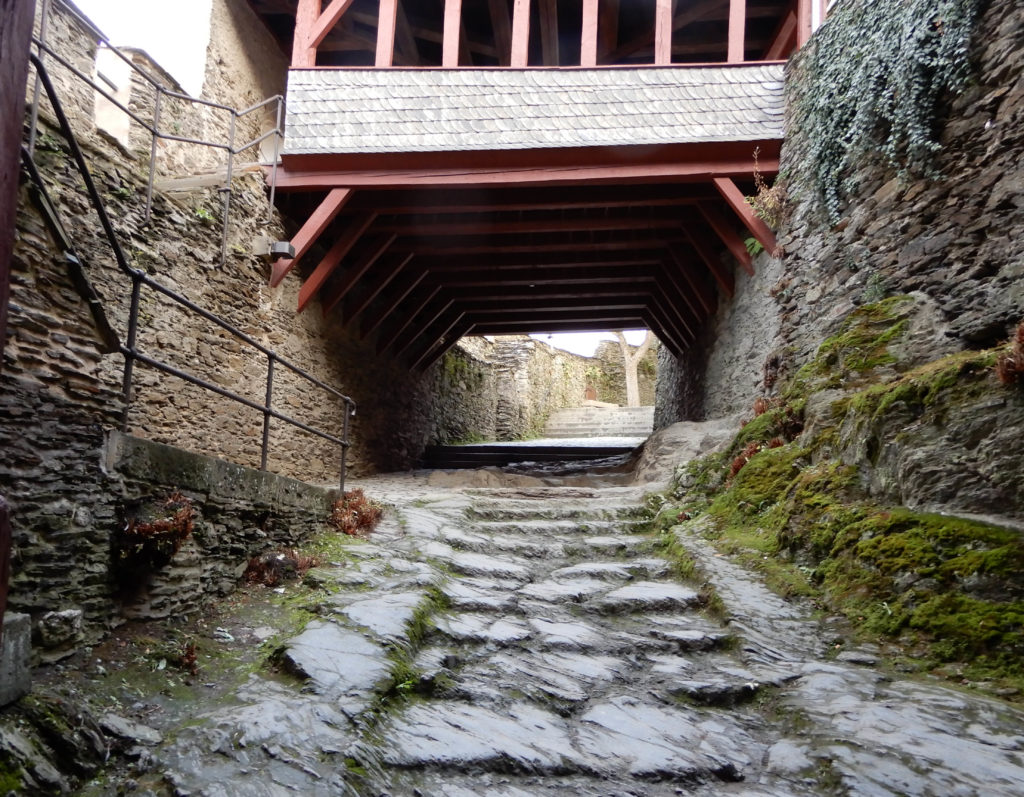
We have successfully penetrated the outer protections and are enjoying the royal views from a walkway inside the castle.
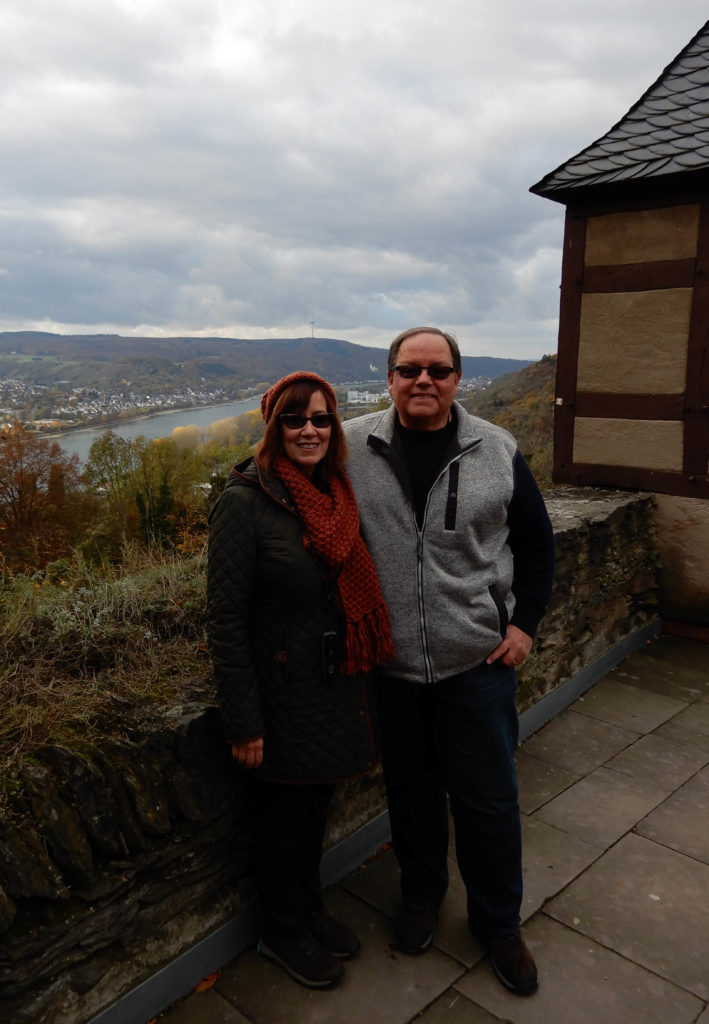
History of the Castle
Coats of Arms honor past royalty proudly displaying the years they ruled. The Landgrafen von Hessen occupied the castle from 1479 to 1803.
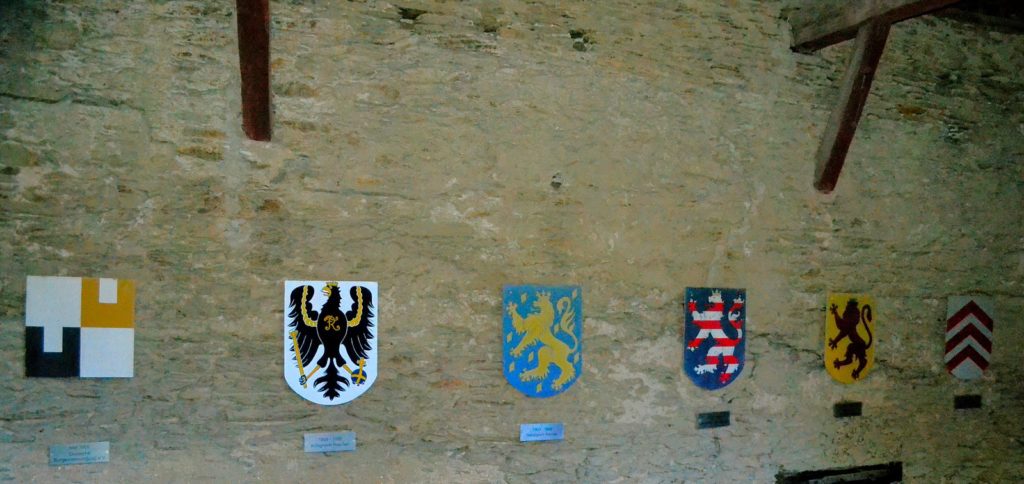
Castle Design
The walkways and courtyards inside the castle are attractive and inviting. But notice, there is still a ten foot wall on the left that drops much further on the other side.
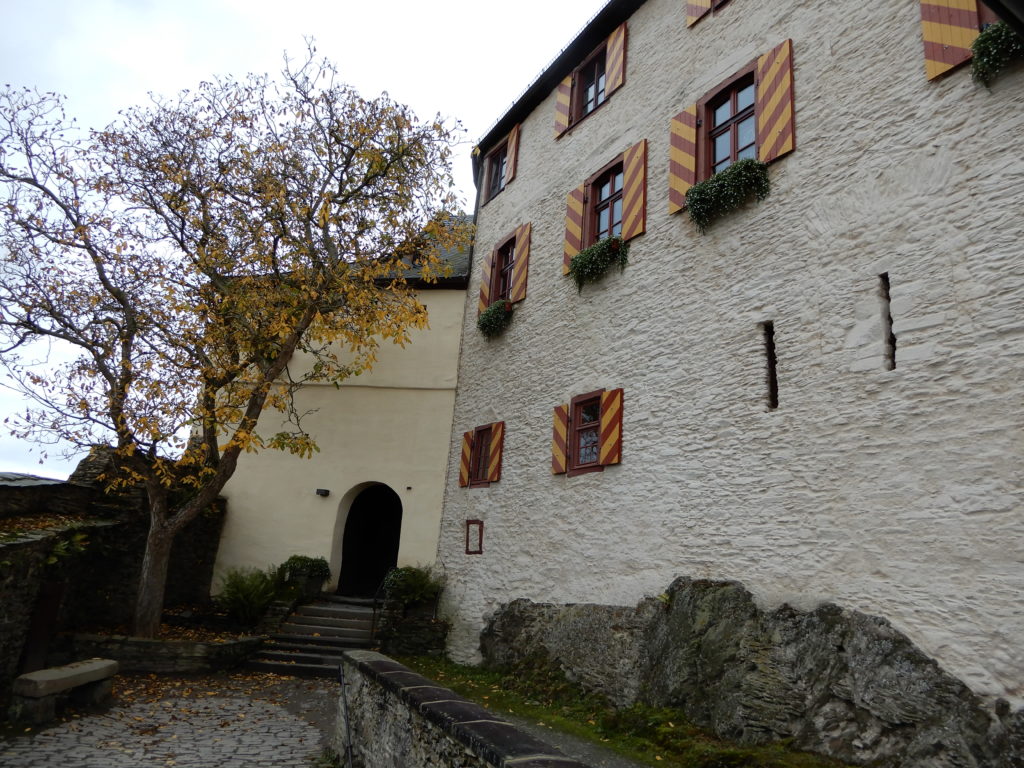
It is impressive how the castle seems to just rise up out of the mountain. Here you can see how a portion the wall is constructed. There is even a small seat built into the wall. I wonder who sat there 800 years ago? What were they thinking about?
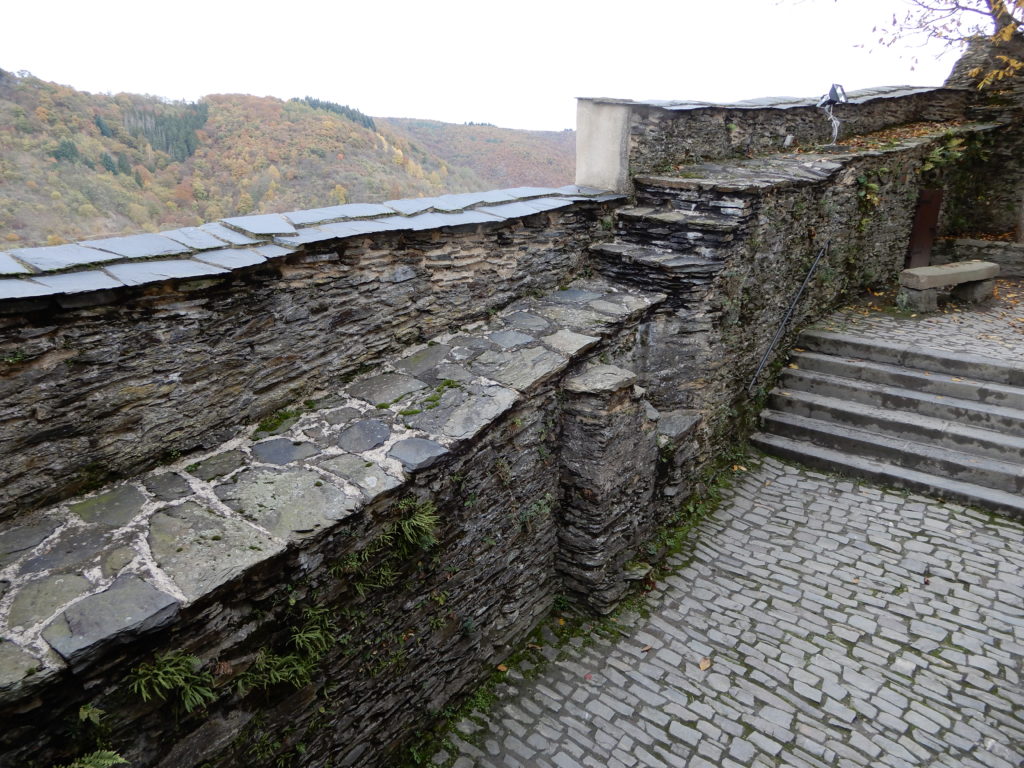
Looking out one of the openings in the wall, you get a good view of the Rhine river and town far below.
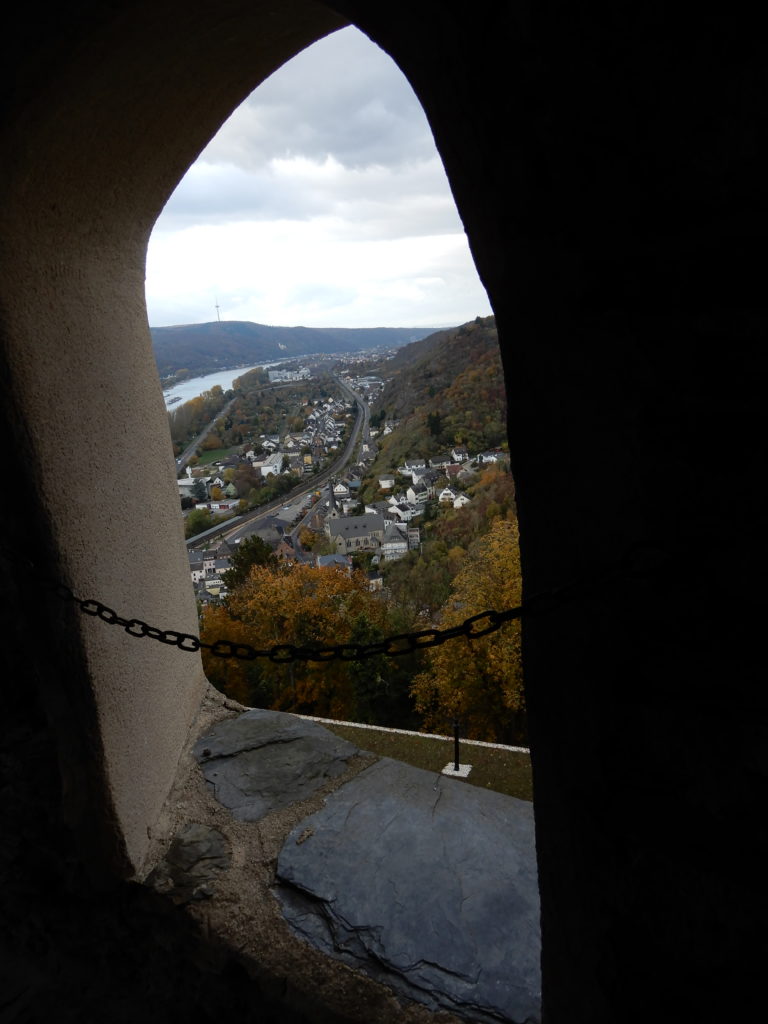
Defending the Castle
Canon placements are located strategically in the castle to fight off attacks.
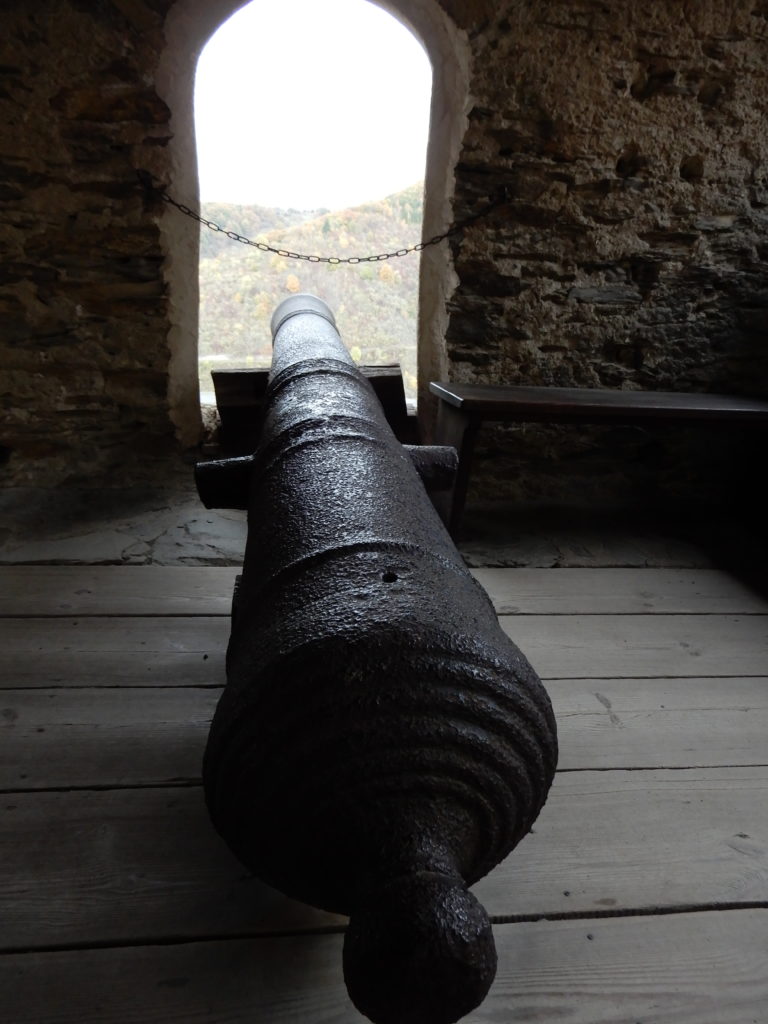
Near each canon is a supply of canon balls. I wouldn’t want to get hit by one of these guys. Ouch !
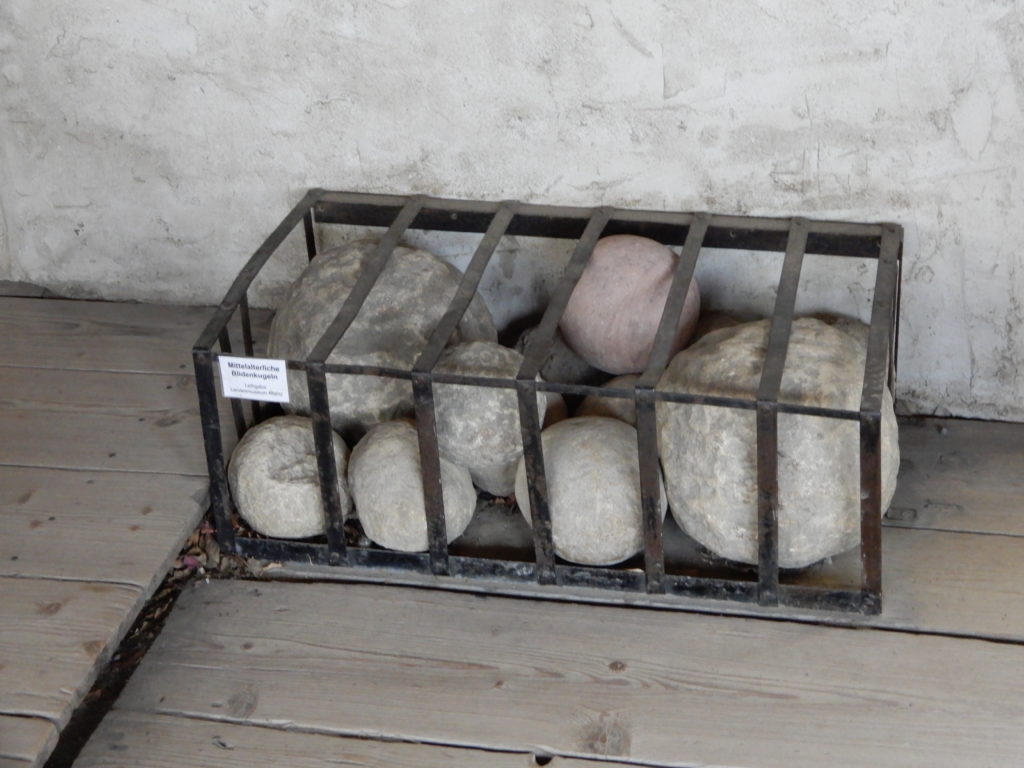
The Castle’s location was perfect to watch the Rhine River and fire canons at ships. Merchant’s ships would be sunk if they failed to pay a tariff to the king to pass. 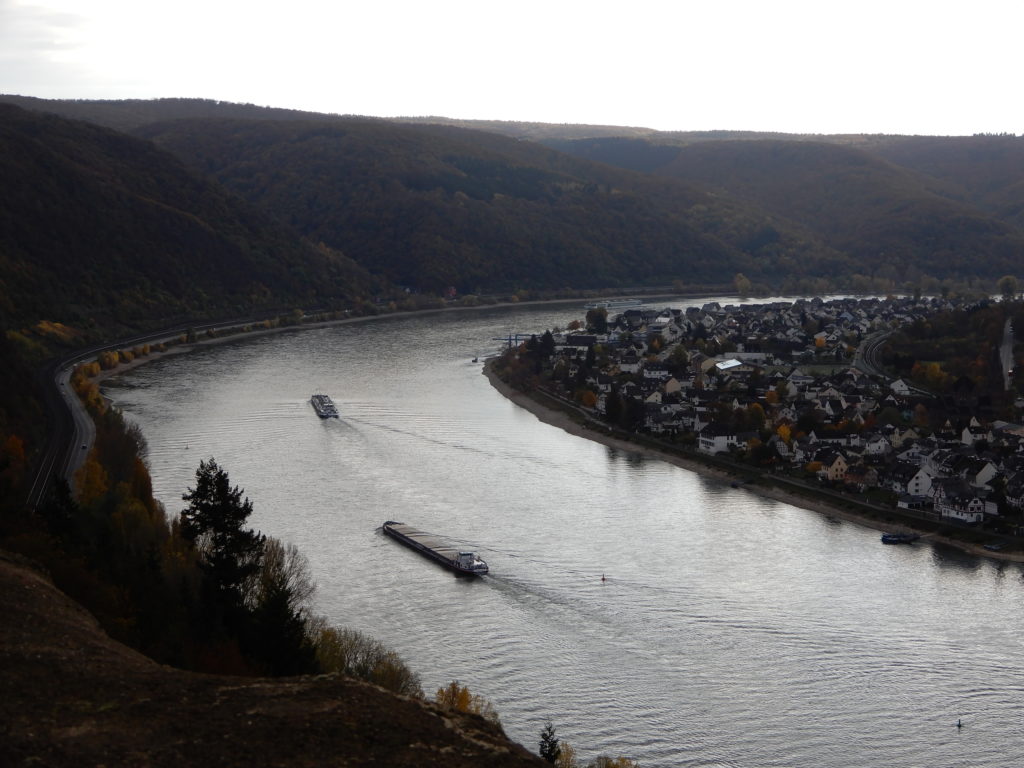 Here is a panoramic picture of the Rhine River in both directions. This gives a perspective of just how far the occupants of the castle can see. Also how far they could monitor river traffic and possible approaching attackers.
Here is a panoramic picture of the Rhine River in both directions. This gives a perspective of just how far the occupants of the castle can see. Also how far they could monitor river traffic and possible approaching attackers.

The building below offers an example of half-timbered construction. Initially, the castle was built in the Romanesque style. In 1283 the Counts of Katzenelnbogen built the Gothic part of Marksburg Castle, giving it its striking form.
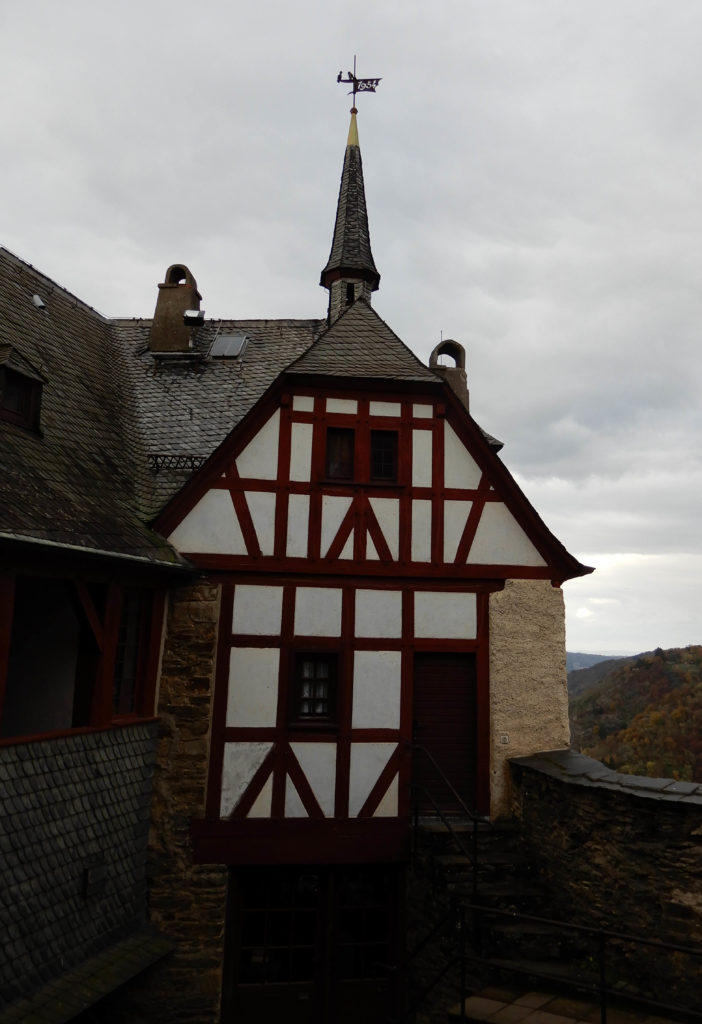
One of the main buildings of the castle. The royal family’s living quarters are up there. Notice the small slits at the lower levels to let light in, but prevent unwanted visitors from gaining easy access. If only someone has invented an extension ladder in the middle ages – They could have made a fortune.
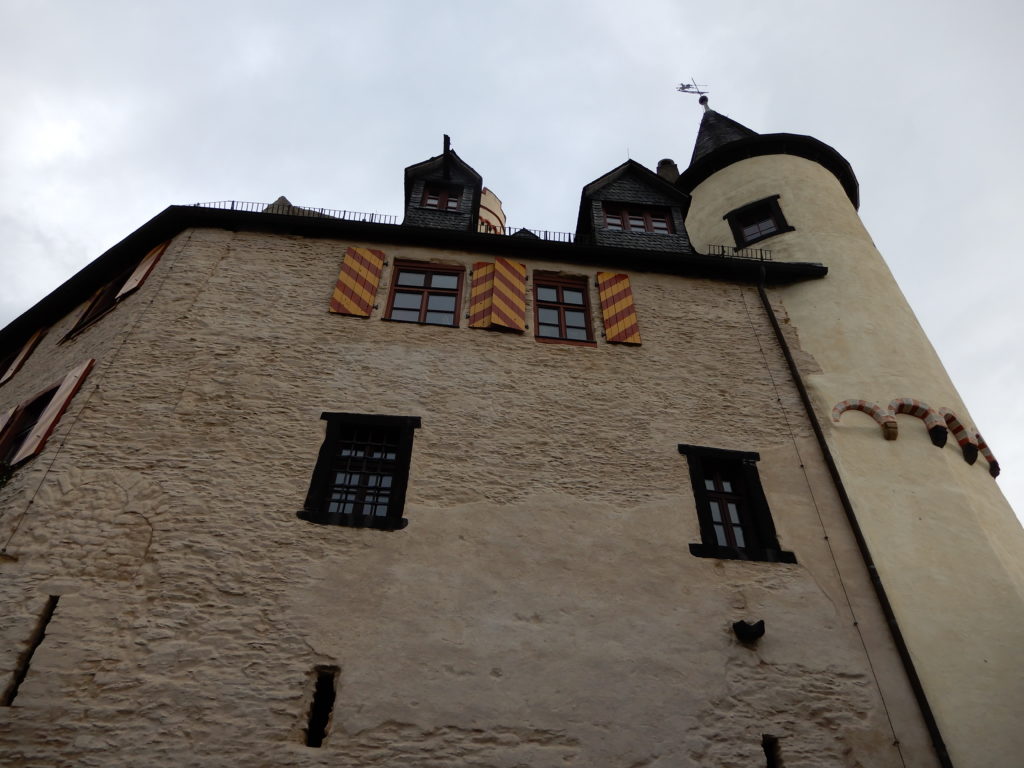
Looking down from a higher point inside the castle you can see a lower protected terrace wrapping around the castle. This lower level had ramparts to protect the knights keeping watch over the surrounding areas.
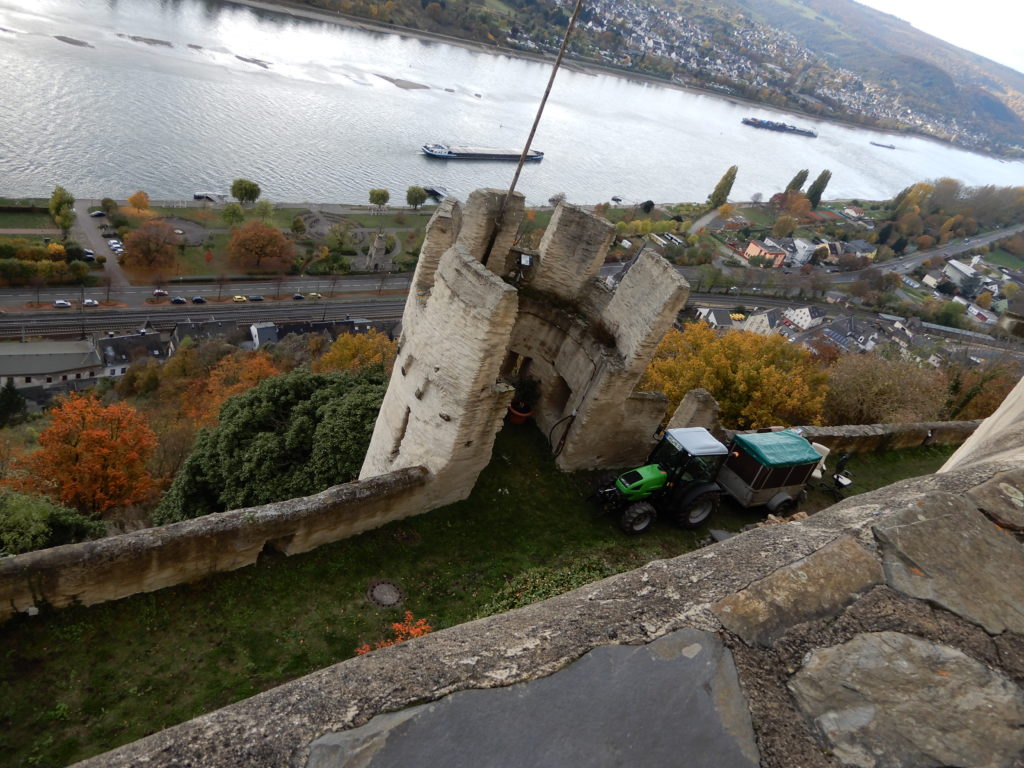
Inside the Castle
What self respecting castle doesn’t have a hardy stock of wine to quench the royal thirst. Wine was more commonly drank instead of water. The purity of wine was more trusted than water…I think they just liked drinking wine.
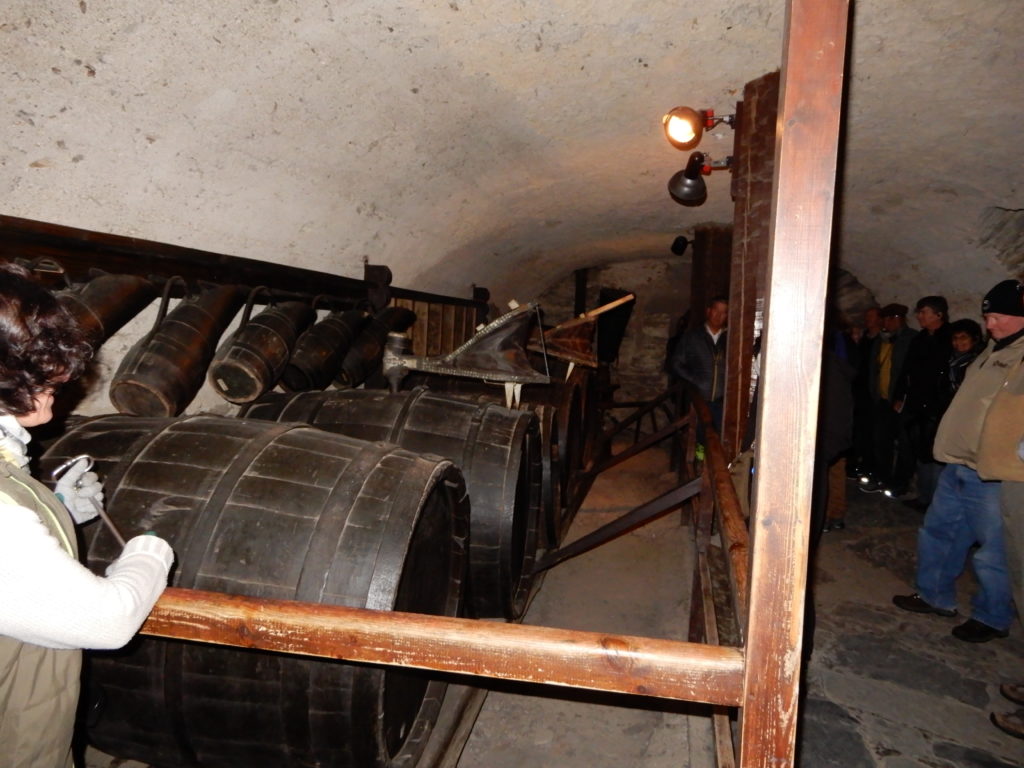
The castle has an Arno wooden printing press from 1767 on display. Originally, Johannes Gutenberg invented the printing press in 1440. Gutenberg was a German ‘jack of all trades’ known as a blacksmith, goldsmith, inventor, printer, and publisher who introduced mass printing.
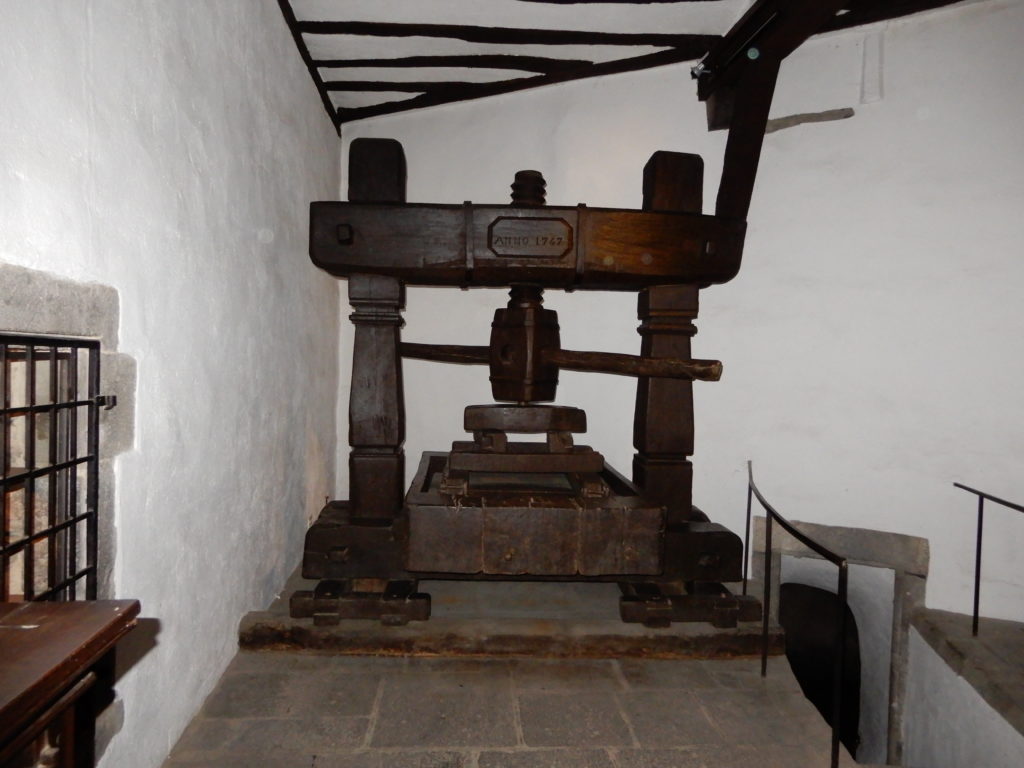
The candles provide light around the castle. What I found interesting was the windows. Why are the steel bars on the outside of the windows? Who are they keeping out? Is it really that bad of a neighborhood? – LOL
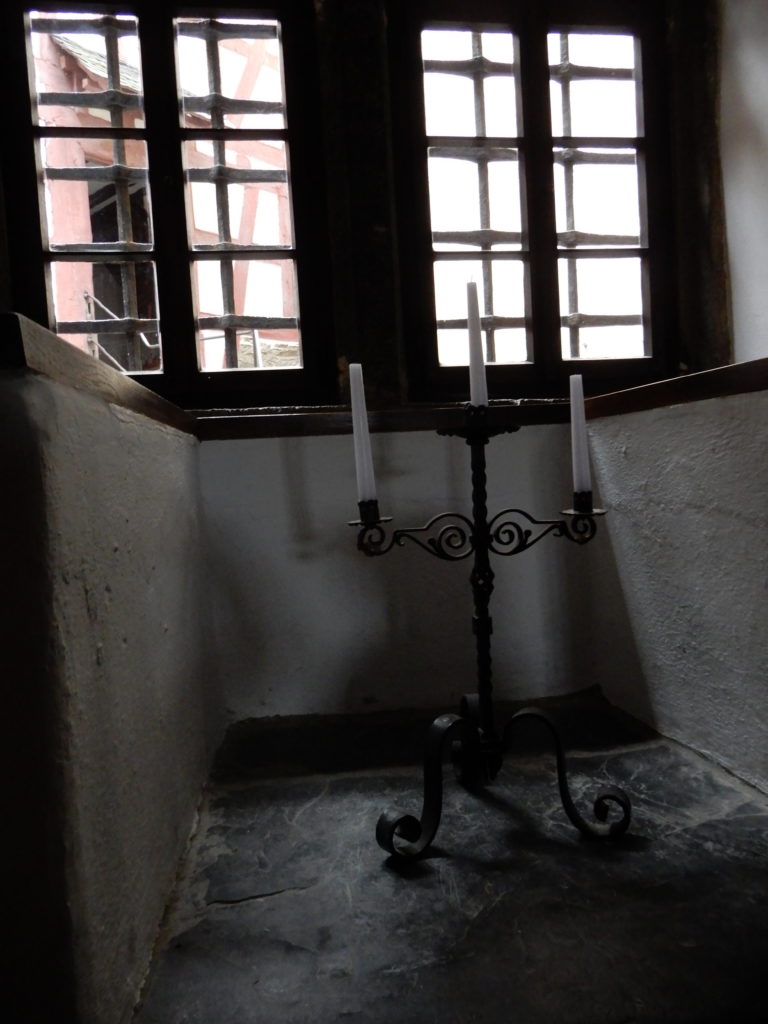
The kitchen and common dining area is a large open space. There is a large walk-in fireplace on the right that has many hanging pots to cook different items at the same time.
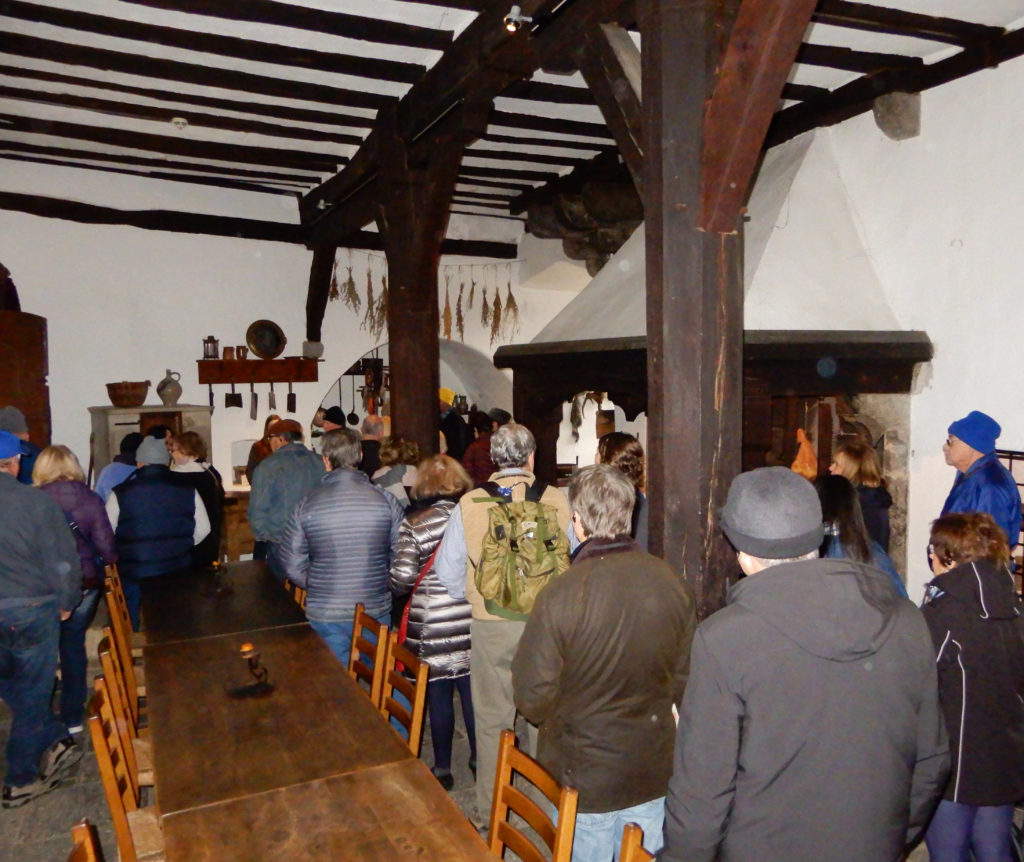
On display in the combination dining and kitchen area are pewter plane of the period.
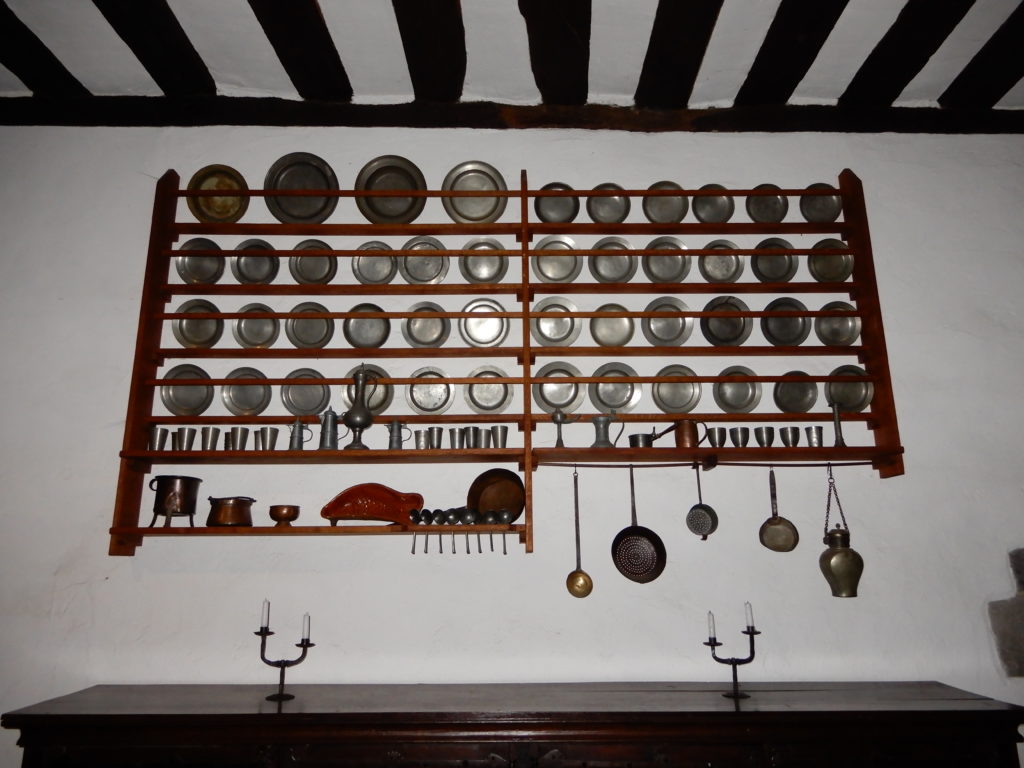
One of the narrow interior passageway within the castle. This picture provides a good contrast of the different building materials and styles used on the walkways, and buildings. The layered stone and half-timbered wood construction demonstrate different time periods.
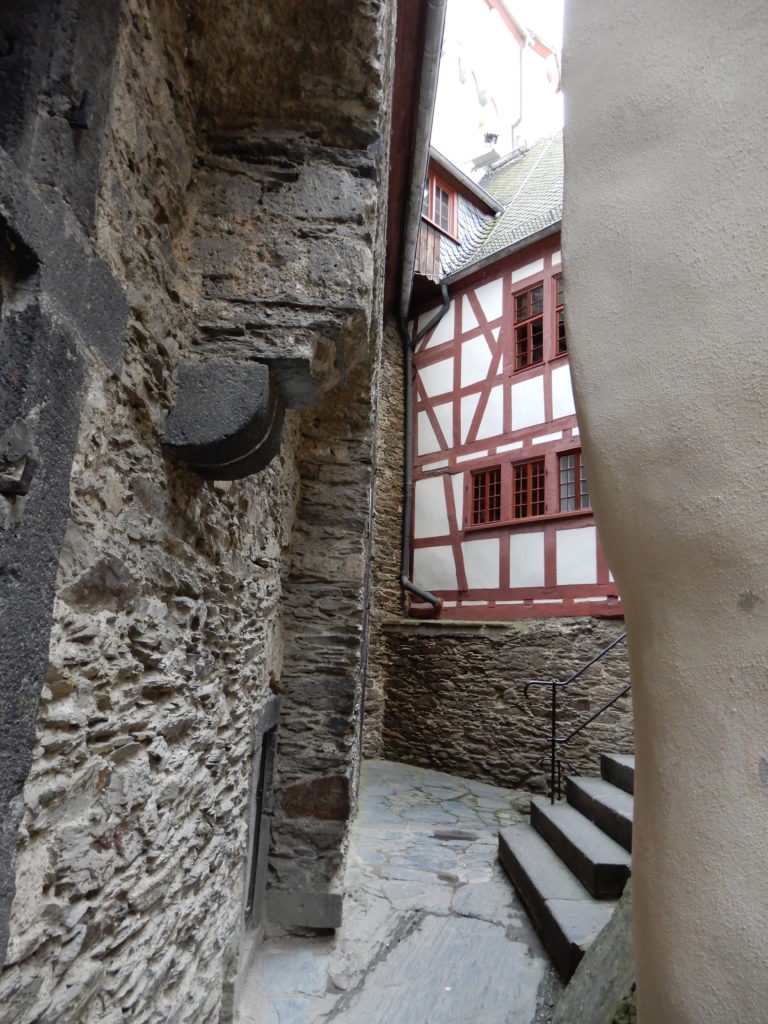
The Royal Living Quarters
In the master bedroom is a small ‘king’ (literally) sized bed. This area of the castle was hard to keep warm. There is a bed pan hanging on the wall to the right used to heat the sheets before his Lord would climb in. Pulling the drapes closed would hold the warmth inside the bed. I guess the baby in the crib was left to fend for himself.
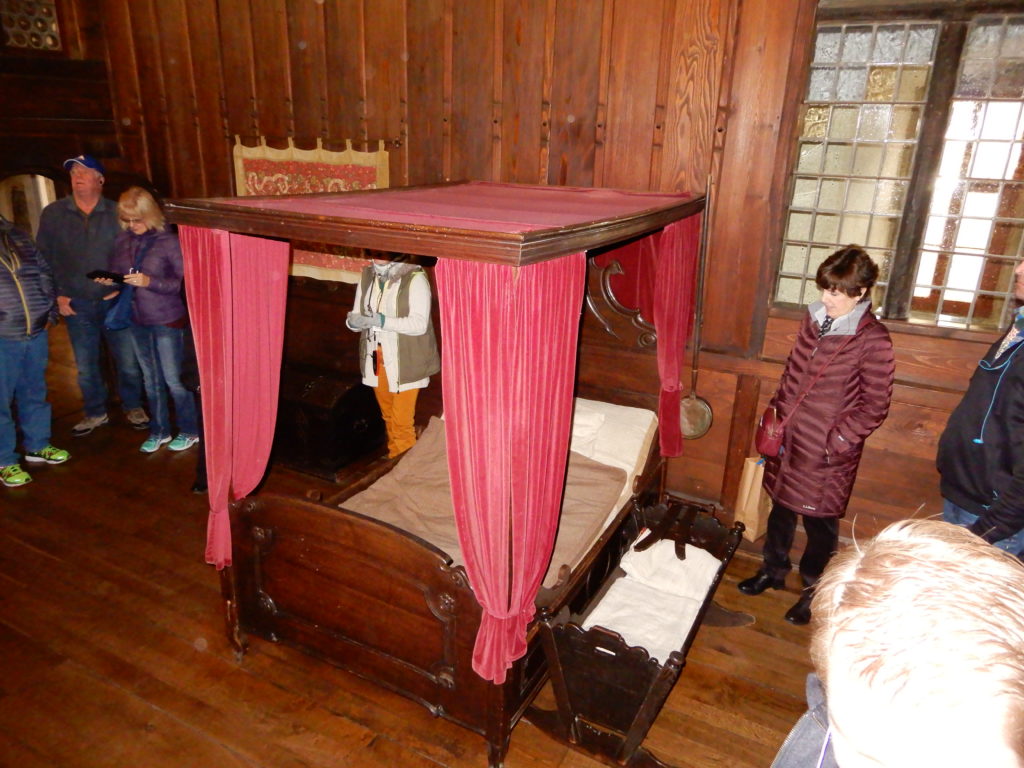
The royal family would gather in this seating area much like a modern day living room. Again, notice the bars on the windows. This window has a 30 foot drop to an interior courtyard below.
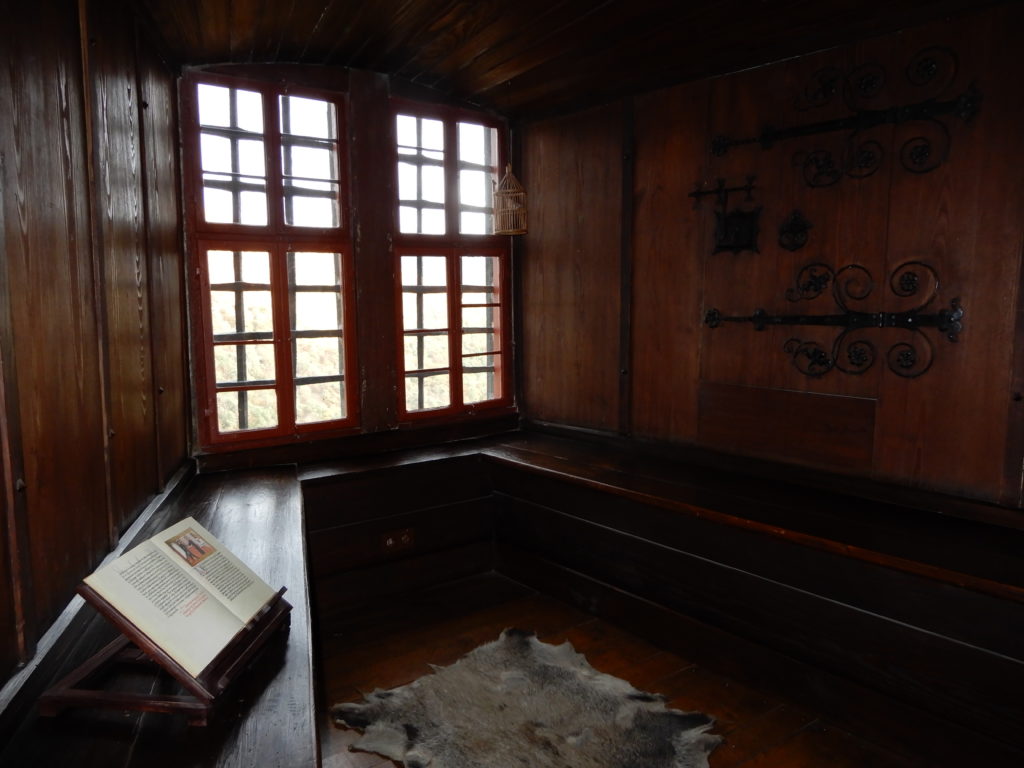
Off of the royal family’s dining room is a bathroom. The small wooden extension at the far end is where the toilet seat is. The toilet space juts out from the castle wall so the seat’s opening is an open air drop 30 feet down to the walkway below. When walking under one of these toilets, be careful not to look up. Again there was fear and planning to protect the royal family. Notice the thick heavy reinforced door that locks from the outside, not the inside. This was to prevent attackers from somehow climbing up through the toilet opening and getting into the living quarters.
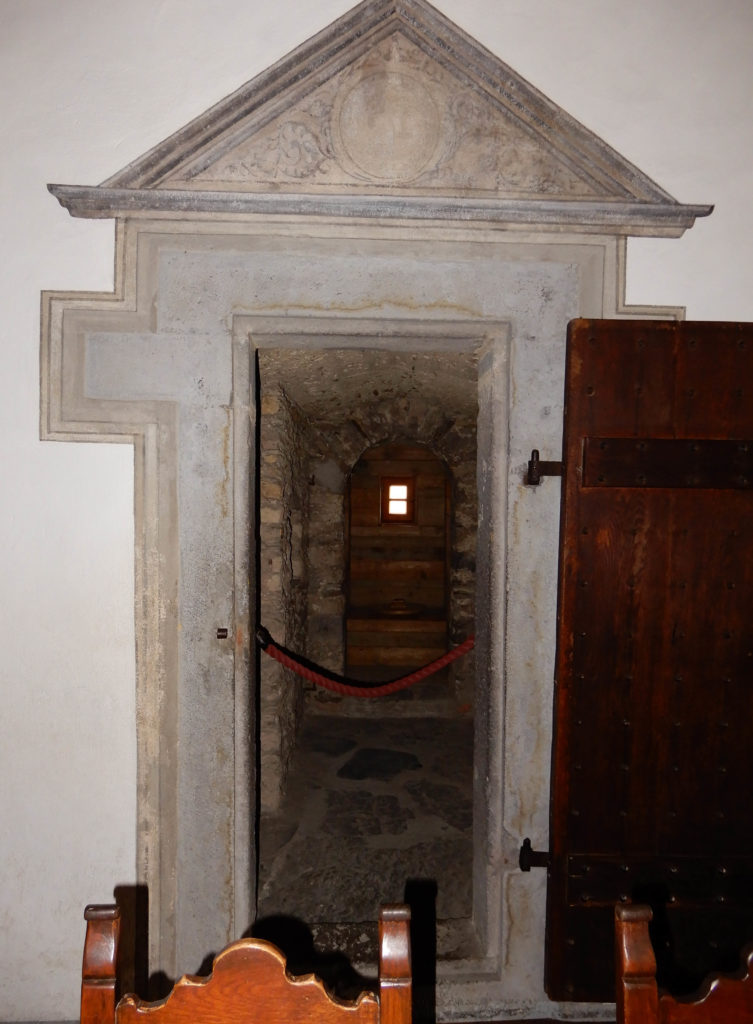
The royal family had a private chapel in their living quarters to worship. Frescoes decorate the ceiling. This room is more ornate that the rest of the living quarters.
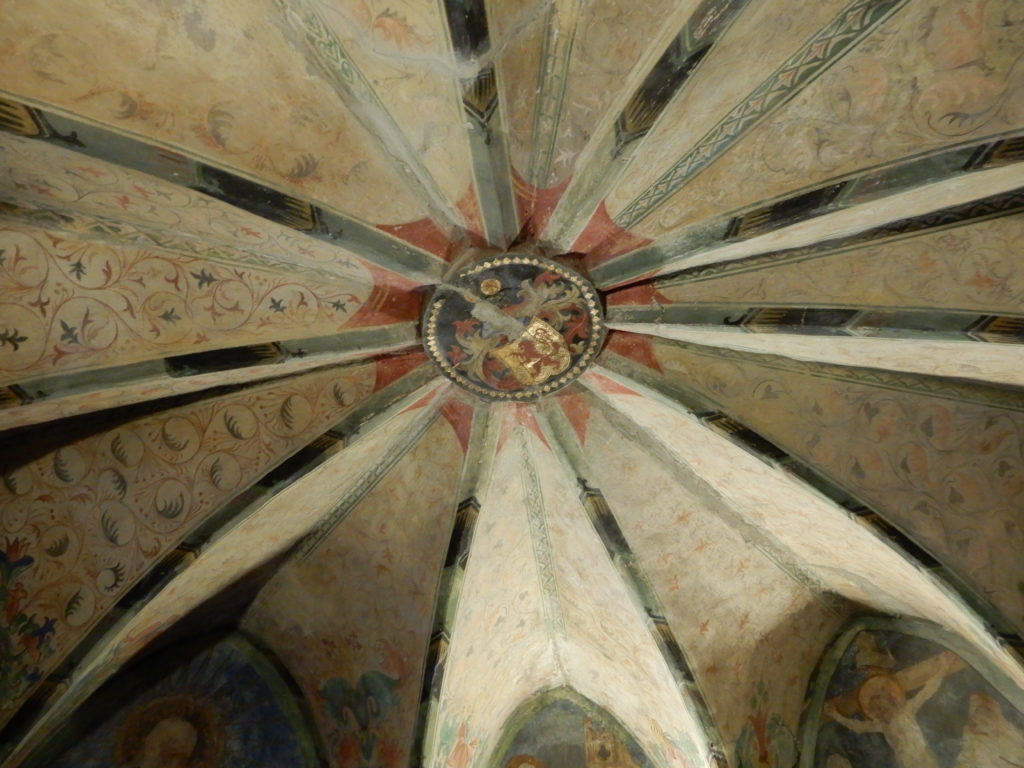
More fresco scenes in the chapel depicting religious stories from the bible.
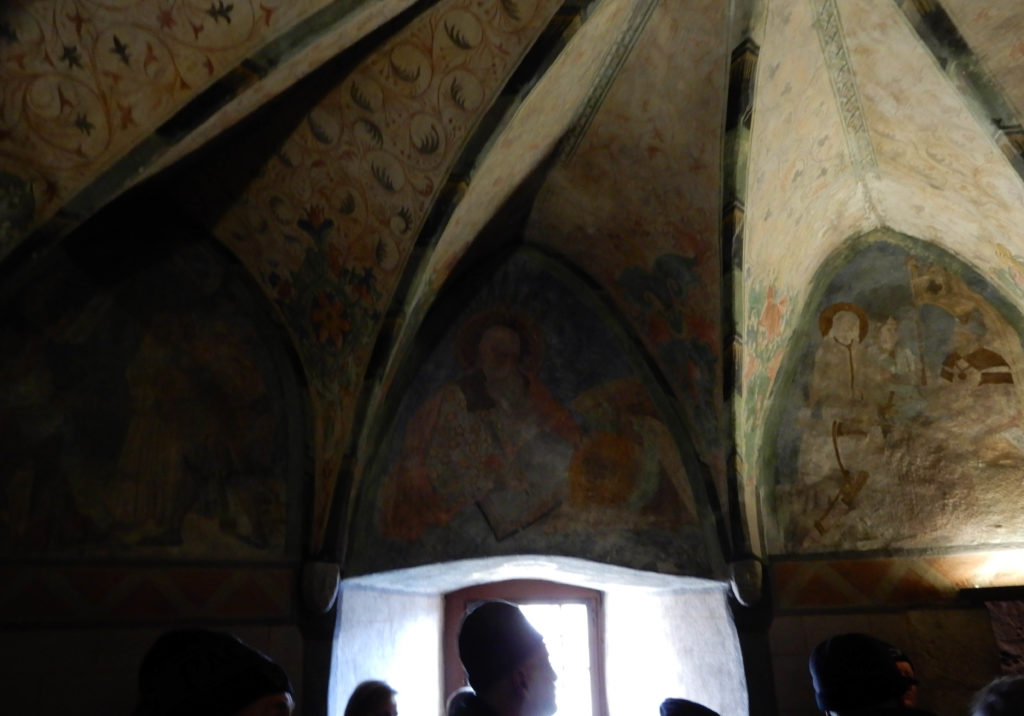
Suits of Armor
A fascinating feature of Marksburg Castle is its stunning display of suits of armor through the ages beginning with a roman spearman (c. 600 bc – far left), up to the ‘modern’ Musketeer of the 1700s. The armor room is very impressive.
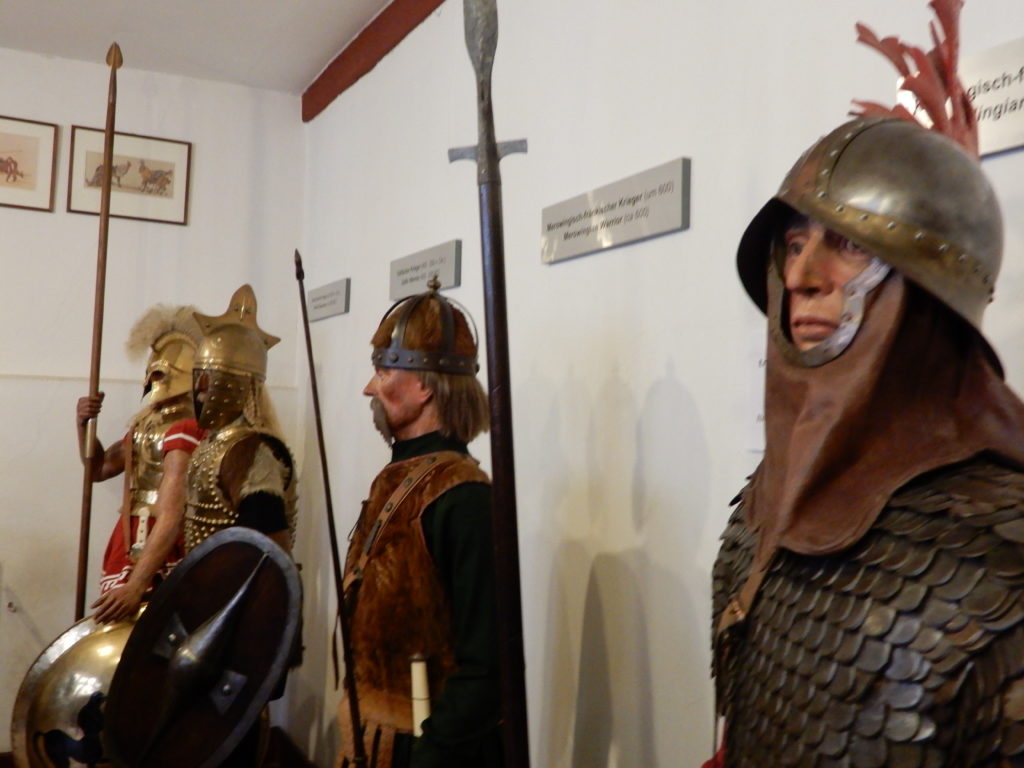
The suits of armor change from period to period based on the development of weapons the armor is protecting against. In the early days (600bc, above left) there were spears and bows and arrows. Knights wore heavier armor to protect against spiked clubs and longer range weapons. This provided knights with greater protection (see below).
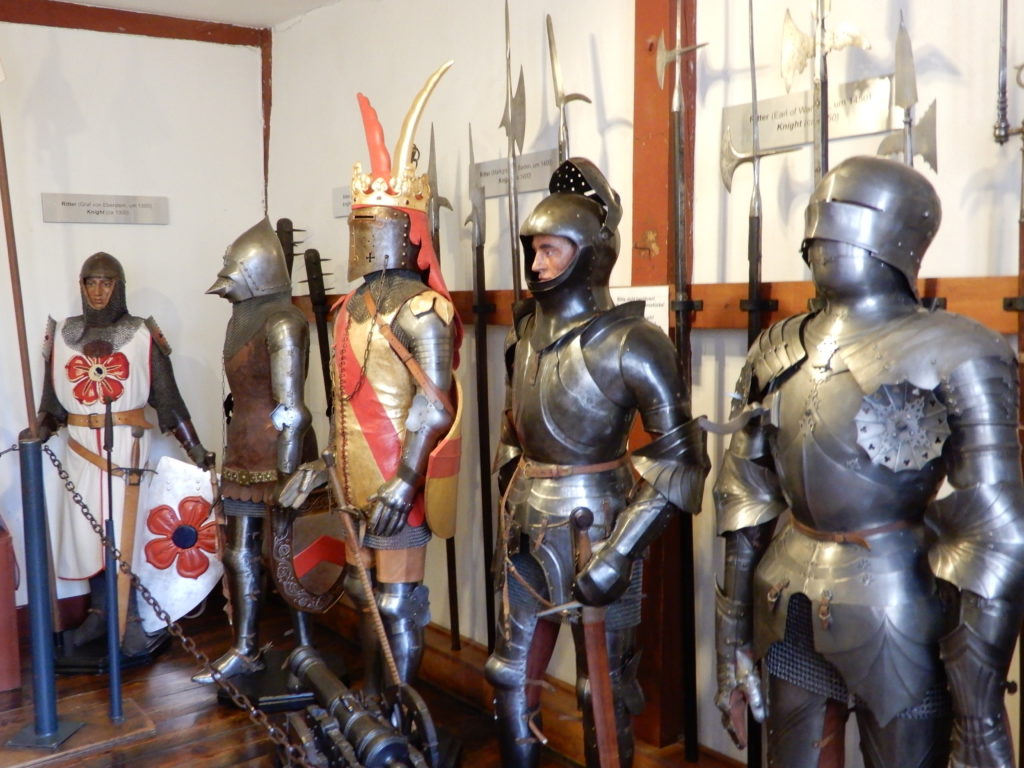
The musketeer (c. 1700s – right) had less armor to allow them to move quickly and be more agile. The armor proved less effective against pistols and rifles. Musketeers dueled with swords requiring greater agility.
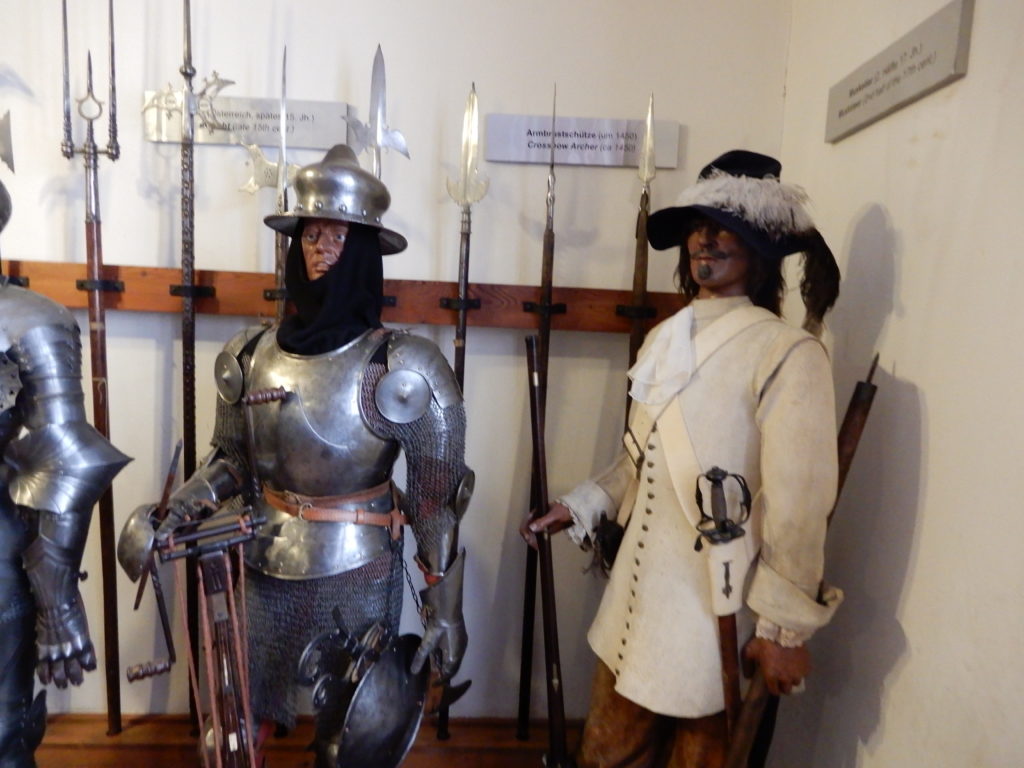
Here is a panorama of most of the suits of armor on display, Continuing to the right are the two pictures above ending with the musketeer.

Working Areas of the Castle
Heavy plated metal doors protected the Castle. This door secures an inner area from an outer area, both located within the castle walls.
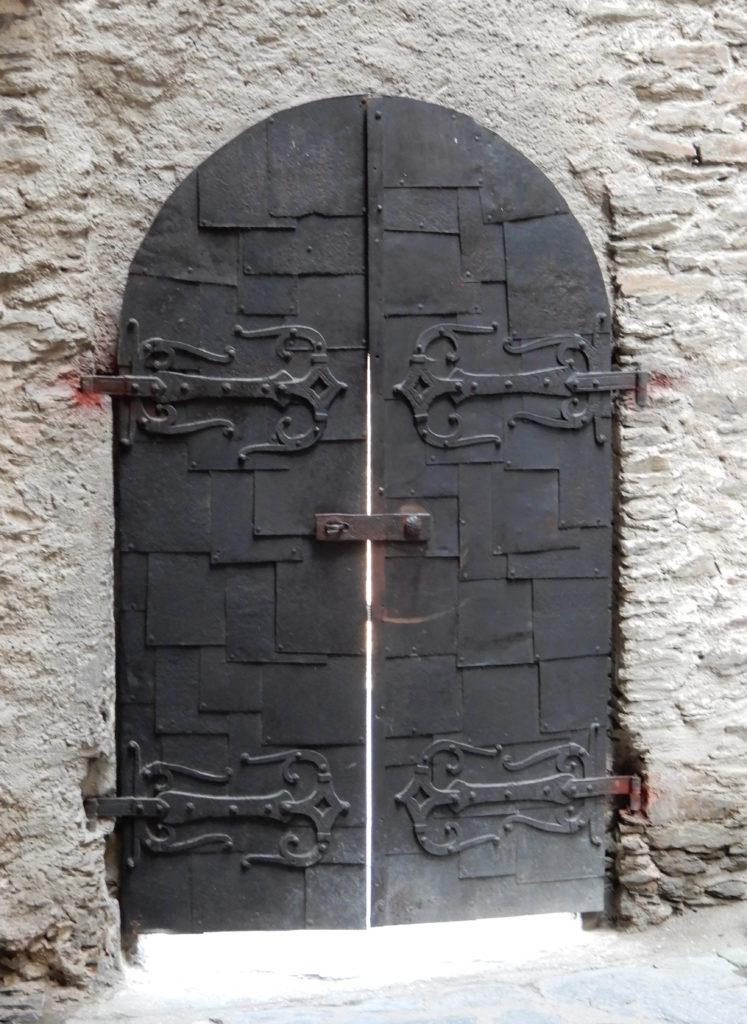
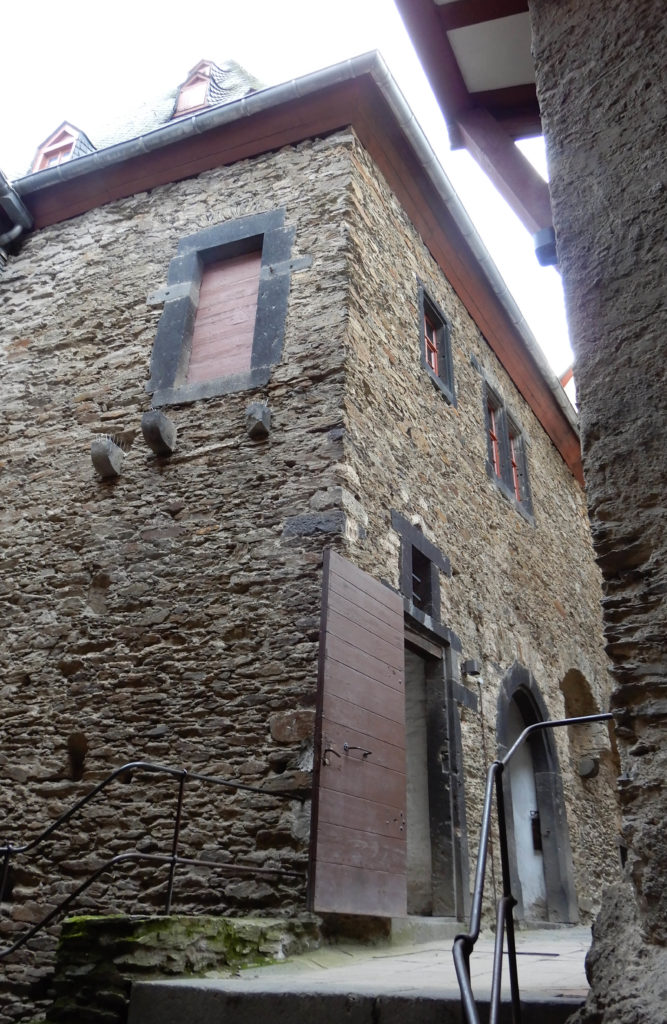
This room displayed some items used for torture. It pays not to anger his royal highness.
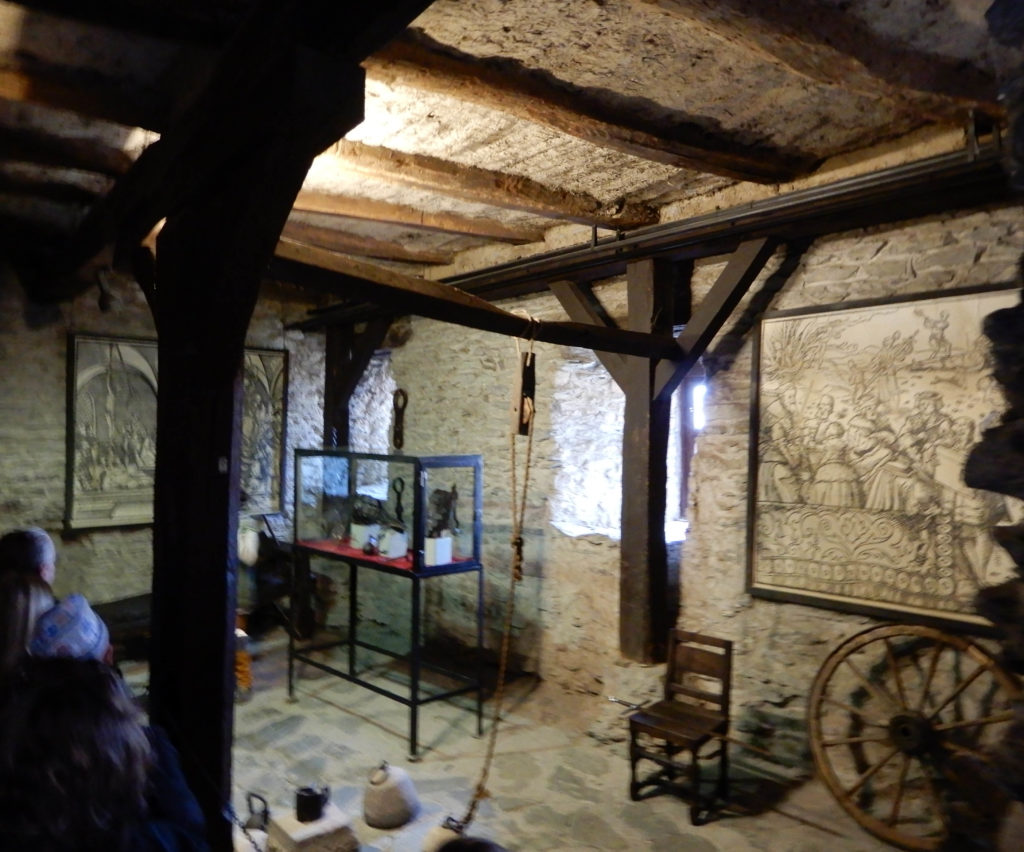
The castle had a complete blacksmith workshop and foundry. The blacksmith made shoes for the horses, repaired hinges and metal doors, and may have made weapons and plates.
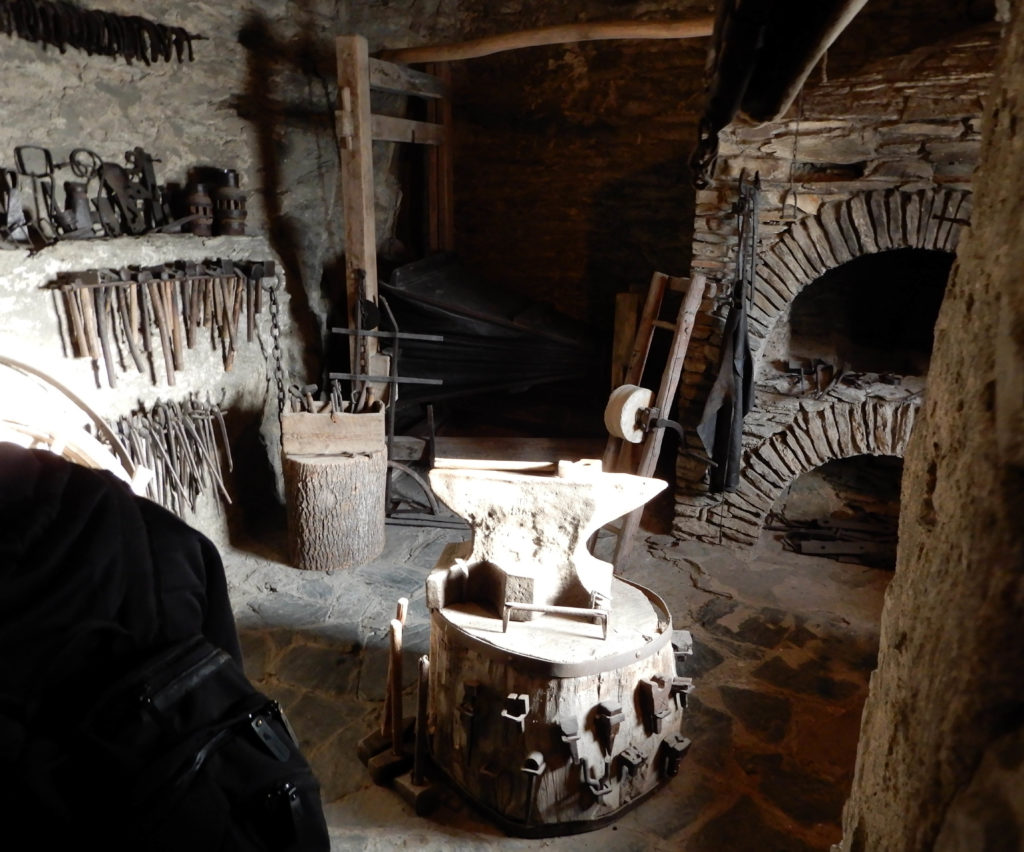
All Hail her majesty, Lady Barbara surveying her lands from an inner courtyard with a view.
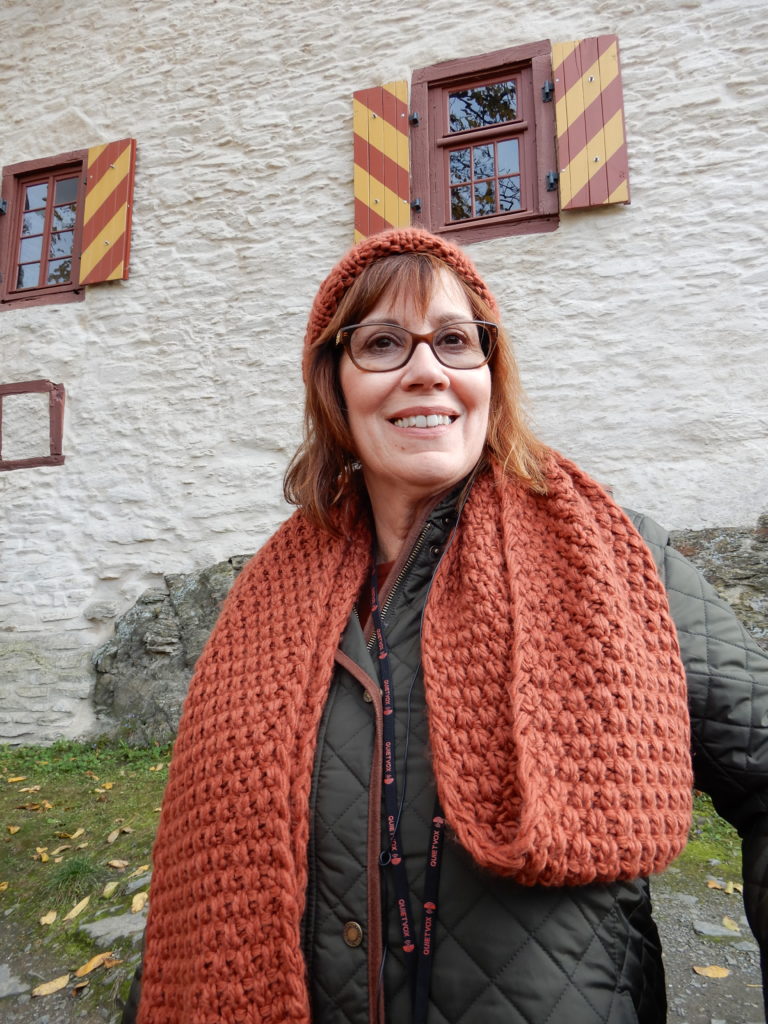
The views of the countryside surrounding Marksburg Castle are spectacular and breathtaking.
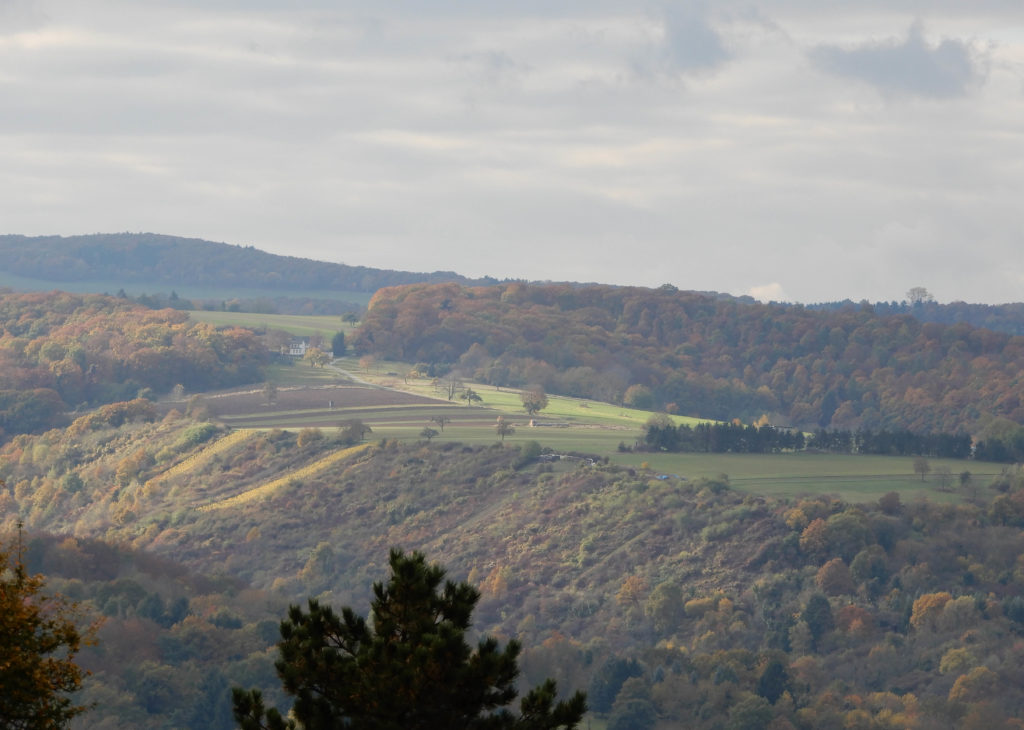
Our Home
Returning to our ship after a long day of exploring. We know the chef will have an incredibly tasty dinner waiting for us.
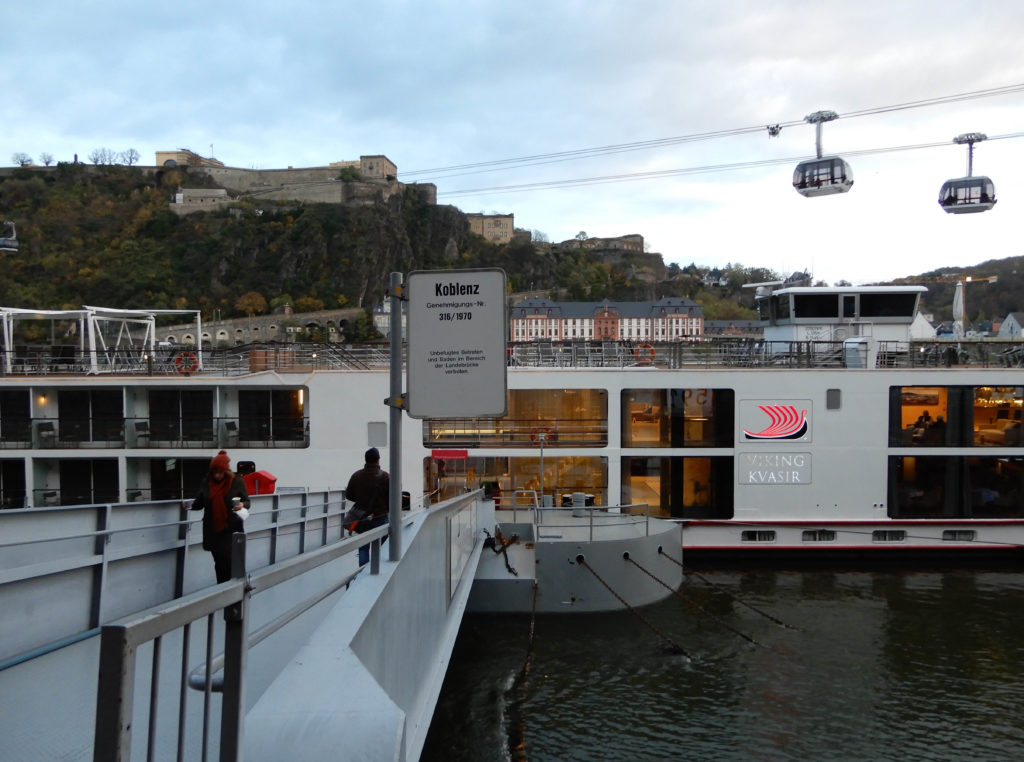
More information about visiting Marksburg Castle can be found here.
Return to Viking Rhine River Cruise .

